100 Mind-Blowing Facts You've Never Heard Before
You might think you know all the trivia out there, but these brand new facts will surprise you.

You've heard the adage before: The more you know, the more you realize you don't know. Yes, the Socratic paradox is alive and kicking, even in this age of instant, accessible, and unlimited information. From surprising facts about the planet to obscure trivia about the animal kingdom to deep secrets about how your body functions, there are so many little-known pieces of information that have the potential to make you say "whoa." Don't believe us? Give it a whirl. Here are 100 brand new mind-blowing facts that might make you rethink how much you think you know. And for more trivia you can use to impress people at parties, learn these 40 Random Obscure Facts That Will Make Everyone Think You're a Genius.
1
Every 'c' in Pacific Ocean is pronounced differently.
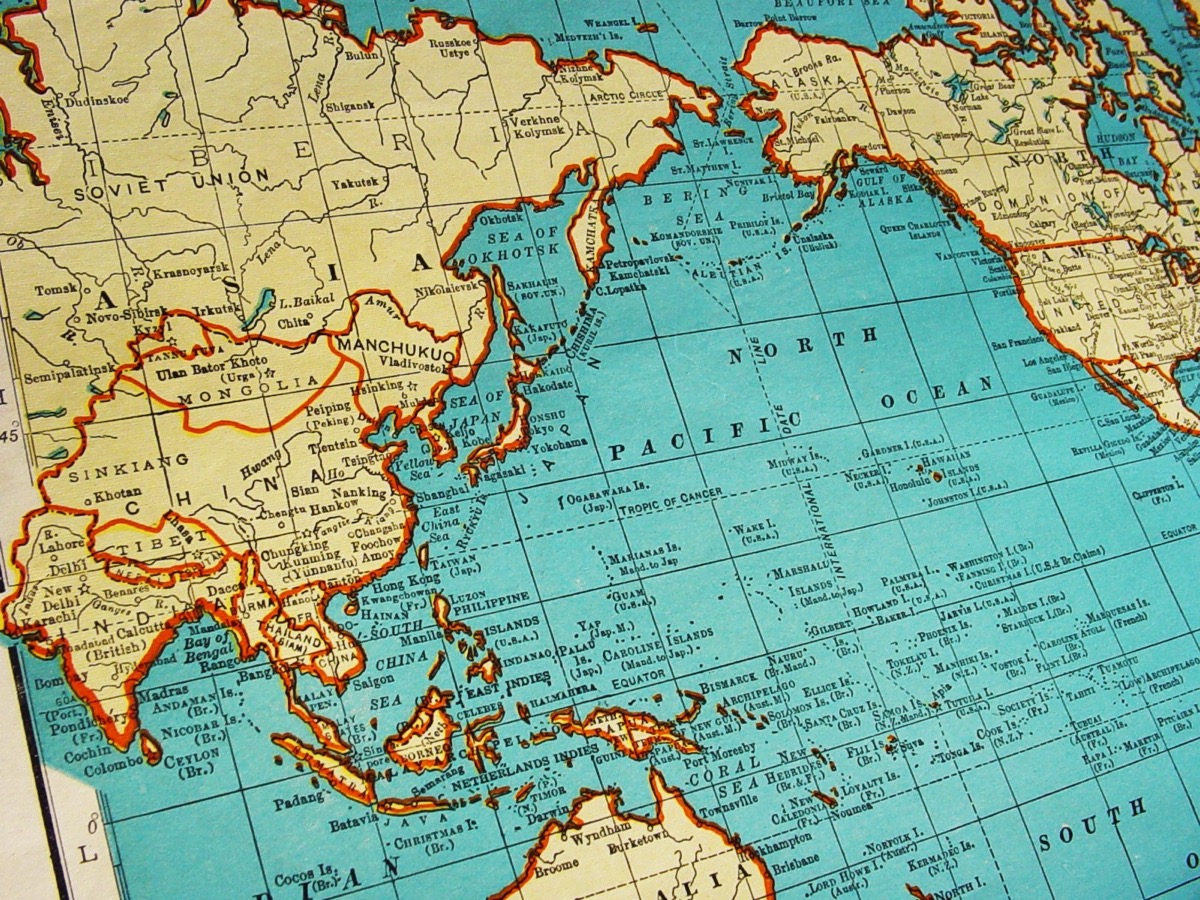
The English language is quirky, and one of the best examples of that is in the way we pronounce Pacific Ocean. Take your time to say it slowly, and you'll notice that each 'c' is said differently—the first with an 's' sound, the second as a hard 'ck' sound, and the third with a 'sh' sound. And for more ocean-related intel, check out these 33 Mind-Blowing Facts About the Earth's Oceans.
2
Black apples exist.
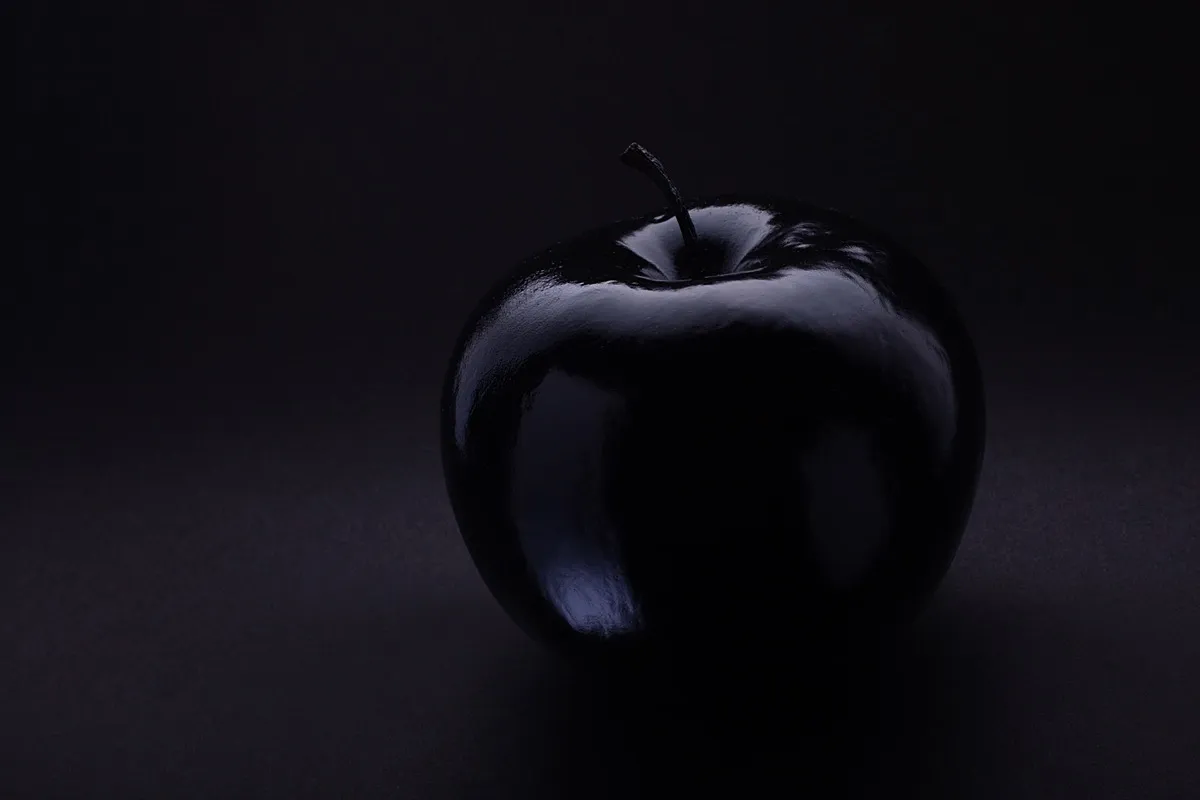
We tend to think of apples as being red, though there are, of course, some popular green and yellow varieties. But did you know there are also black apples? Called Black Diamond apples, they're found in Tibet and are from the Hua Niu family of apples, also known as Chinese Red Delicious. Aside from the black outer color—actually an extremely dark shade of purple—these apples look just like other Red Delicious apples, down to the white flesh inside.
3
Butt-shaped robots are used to test phones.

If you've ever put your phone in the back pocket of your pants, you're probably aware that your backside poses a danger to it: People often forget their phone is there when they sit down, which can result in a crushed and broken device. That's why Samsung uses butt-shaped robots to test their products. According to Business Insider, the faux bums "'sit' on Samsung phones over and over again to test durability and bending."
4
There are now giant pigs as heavy as polar bears.
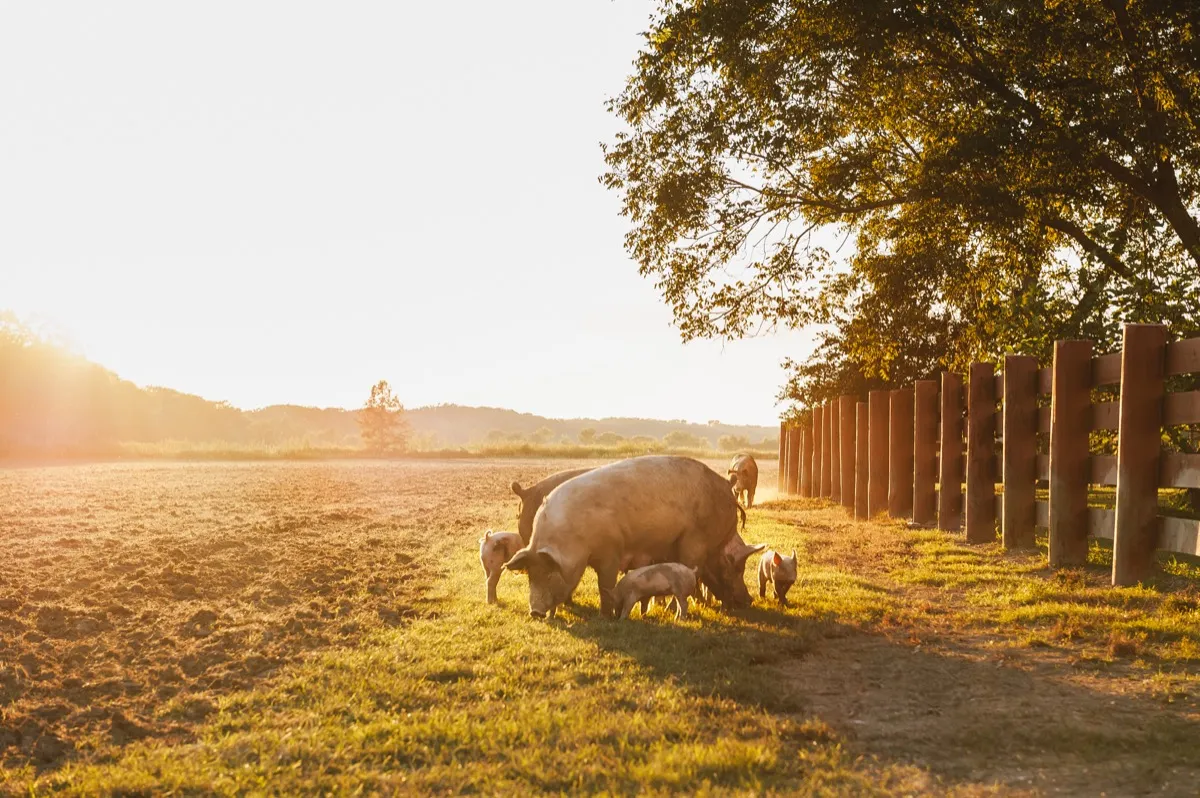
"In a farm deep in the southern region of China lives a very big pig that's as heavy as a polar bear," according to Bloomberg. The creature weighs a whopping 1,102 pounds, which is pretty impressive considering that the International Association for Bear Research and Management says adult male polar bears weigh anywhere from 880 to 1,320 pounds. The massive pig who "is part of a herd that's being bred to become giant swine" will eventually be sold for meat, and due to its size, will likely bring in around $1,400. And for more trivia about all creatures great and small, here are 50 Animal Facts That Will Change the Way You View the Animal Kingdom.
5
Japanese golfers have hole-in-one insurance.

If you think that you take sports seriously, consider that an estimated four million golfers in Japan make sure that they have hole-in-one insurance before they take a swing, and have been doing so since the first such policy was offered in 1982. Amateur players pay a premium of $65 a year for $3,500 in coverage. The extra cash comes in handy if a golfer nails the impressive feat and is then expected to celebrate by paying for food, drinks, and gifts, which can cost quite a bit.
6
Cucamelons (or "mouse melons") look like grape-sized watermelons but have a citrus flavor.

Plenty of people enjoy eating watermelon, but have you ever tried a cucamelon? While cucamelons or "mouse melons" sound like they could be related to watermelons—and certainly look like tiny grape-sized versions of the larger fruit—they resemble cucumbers inside and have a citrusy taste. Originally from Mexico and Central America, cucamelons can be eaten as they are, added to a salad, made into salsa, or even pickled.
7
Walt Disney World would fit inside Canada 81,975 times.

Walt Disney World is a big place, but Canada is way bigger. In fact, the nation up north is so massive (3.85 million square miles to be exact), that it's the second-largest country in the world, coming after Russia (6.6 million square miles) and before the United States (3.79 million square miles). That's why the beloved theme park could fit inside of Canada 81,975 times. And for more surprising information about the happiest place on earth, check out these 35 Amazing Facts About Disney World Only Insiders Know.
8
The kangaroo mouse never needs to drink water.
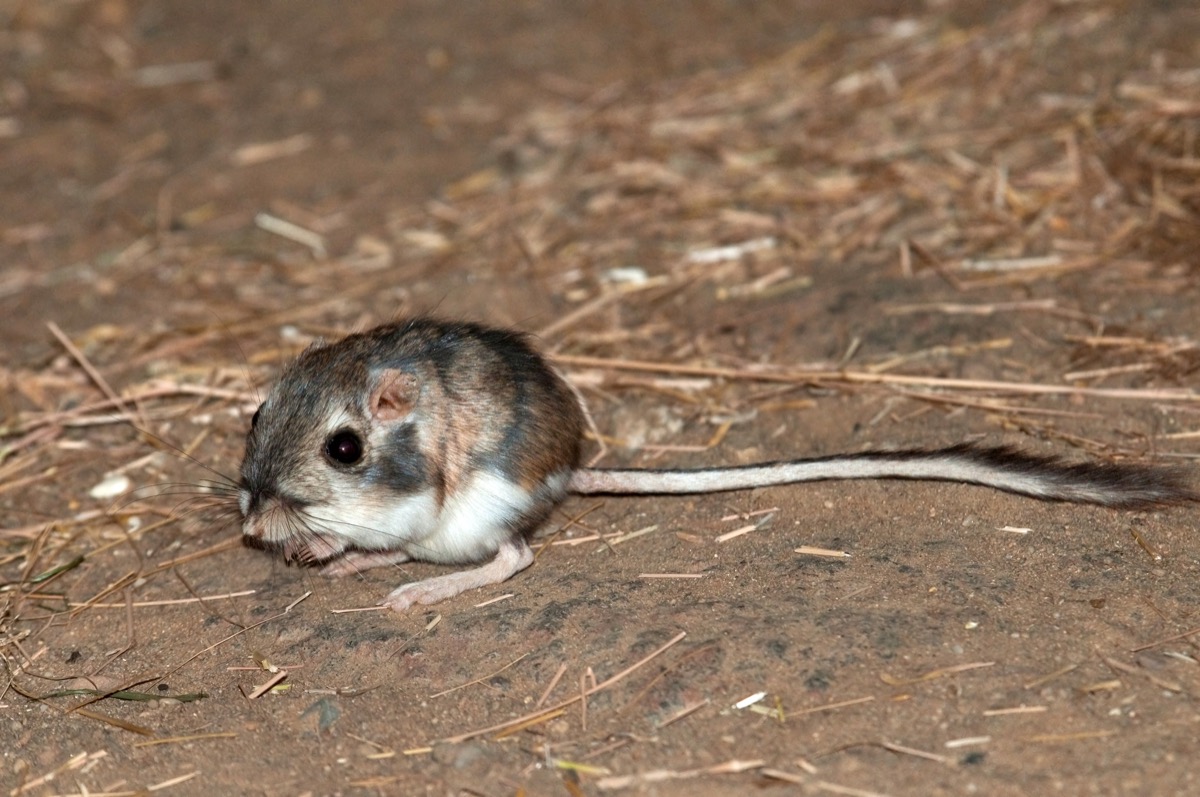
Despite being named after an Australian animal, the kangaroo mouse lives in the Nevada desert. And since it resides in such a dry area, it's learned to adapt by getting all of the hydration it needs via the seeds it eats. This means that the kangaroo mouse never drinks water.
9
Spending just a few months in Antarctica can shrink your brain.
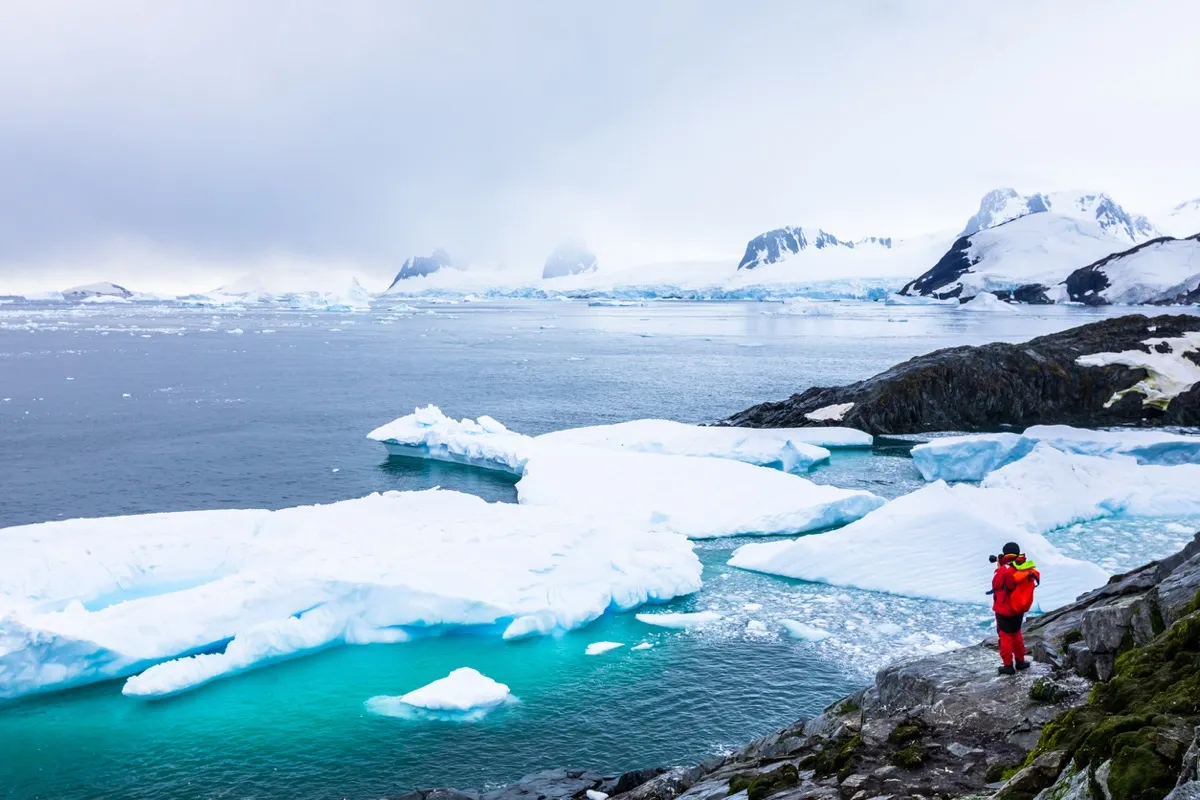
If you ever take a trip to Antarctica, be sure to do as much socializing as you possibly can, and come up with stimulating ways to keep yourself busy. Research published in the New England Journal of Medicine in Dec. 2019 explained that "brain imaging in eight polar expeditioners before and after 14 months of isolation showed that the volume of the hippocampal dentate gyrus was lower than that in controls." IFL Science notes that "researchers believe the changes in the brain they observed are the result of … environmental monotony and prolonged isolation."
10
A prank once convinced people in Germany that Hansel and Gretel were real.

Hansel and Gretel are figures you'll likely recognize from the 1812 Brothers Grimm fairy tale, but in 1963, a prank had people believing that the siblings were real. Die Wahrheit über Hänsel und Gretel (The Truth About Hansel and Gretel) was a book written by German artist Hans Traxler. In his writing, he claimed that the brother and sister were actually murderous adult siblings who had lived in the mid-17th century and had killed a witch in order to get their hands on her recipe for a gingerbread-like treat. The book even included (fake) evidence, like a piece of paper that had the recipe written down. The story apparently caused an "uproar," according to Atlas Obscura, who note that the Berliner Zeitung newspaper even asked readers if this was an example of "a criminal case from the early capitalist era." And for some more recent trivia, revisit 50 Amazing Facts We Learned in the 2010s.
11
Greenland sharks don't reach sexual maturity until they're 150.
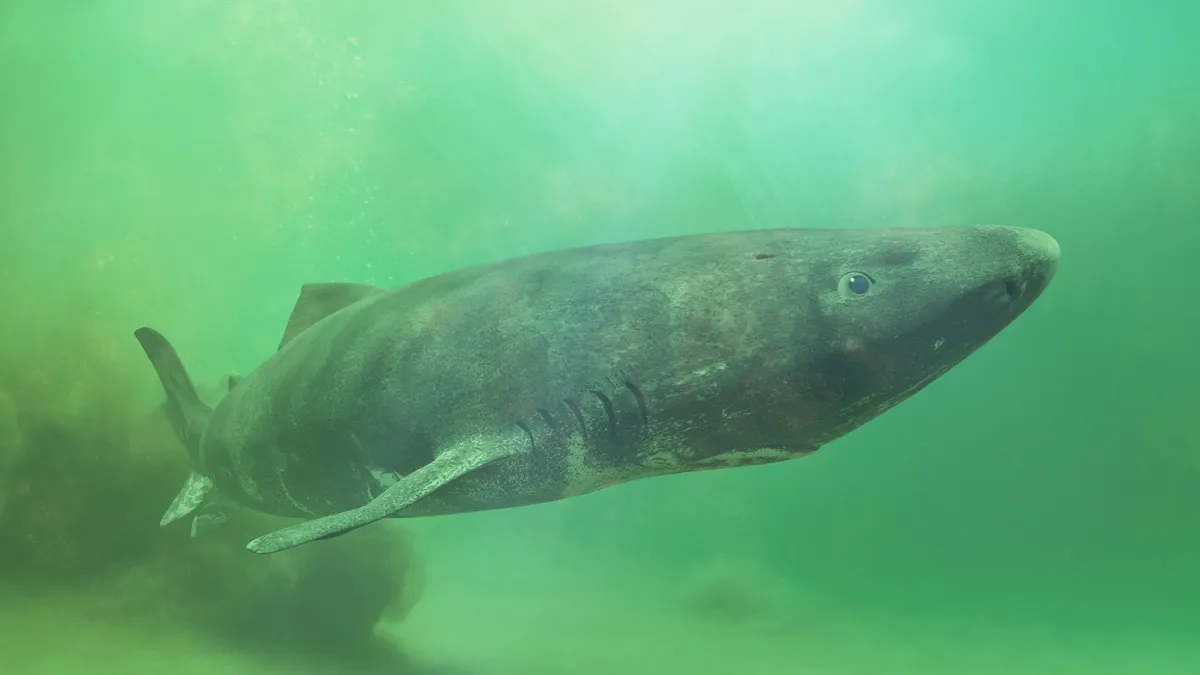
Greenland sharks, which are also known as gurry sharks or grey sharks, tend to live long lives. As the longest-living vertebrate on the planet, they can swim around the ocean for up to 400 years and don't reach sexual maturity until they're 150.
12
The longest bicycle in the world is over 135 feet long.

If you've ever ridden a tandem bike, you know that it can be tricky to get one moving. So just imagine how hard it must have been to ride a bike that stretched for 135 feet and 10.7 inches, making it the longest bicycle in the world. Crafted by Santos and the University of South Australia in 2015, a group of cyclists did manage to ride the bike—which was much wider than normal in order to compensate for the length—over a distance of 100 meters.
13
A couple once tried to name their child Brfxxccxxmnpccccll-lmmnprxvclmnckssqlbb11116, pronounced "Albin."

Celebrities are known for giving their children unique names—Vogue points out that A-lister kid names include Gravity, Pilot Inspektor, Apple, and, of course, North, Saint, and Chicago. But you don't have to be famous to opt for an unexpected moniker. According to the BBC, a couple once tried to name their child Brfxxccxxmnpcccclllmmnprxvclmnckssqlbb11116, which is apparently pronounced "Albin." They had reportedly chosen the title to protest Sweden's strict name-related laws, which is why it may not be surprising that their selection was rejected.
14
Text messages sent by eagles bankrupted a scientific study.

A team from the Russian Raptor Research and Conservation Network thought they had a great idea when they attached SMS text-based tracking devices to 13 steppe eagles. The hope was that the birds would send back valuable information about their behavior. Unfortunately, one bird flew all the way to Iran, "where roaming rates are sky-high," according to Smithsonian. To get an idea of the kind of money involved, the eagle sent hundreds of text messages at once, and each one cost about 77 cents. Scientist Elena Shnayder told The New York Times, "He disappeared for five months, and all of a sudden here he is, with a very, very heavy phone bill." The bill was so costly that it ended up bankrupting the study.
15
The longest tiramisu ever measured was 897 feet and 3 inches.

If you love tiramisu, then you probably think you could never get too much of the tasty treat. However, you might reconsider that opinion when you find out that the longest tiramisu ever created was 897 feet and 3 inches long. Produced by Italian cheese brand Galbani, students from the Milan Cooking School assembled the giant dessert, which was then divided up and served to those at the record-breaking event, while an additional 15,000 pieces went to a local children's hospital.
16
The Star Trek theme song has lyrics.

Most fans of pop culture can hum along to the Star Trek theme song, but did you know that there are lyrics that go along with the classic tune? And we're not referring to the "Space, the final frontier…" monologue that's spoken at the beginning. Written by Star Trek creator Gene Roddenberry, the words (and sentiments) shared by The Los Angeles Times are just as, er, spacey as you might expect. If you want to sing along, all you need to do is croon, "Beyond the rim of the star-light, my love is wand'ring in star-flight…"
17
The Ethiopian calendar is seven years behind the rest of the world.

In Ethiopia, things are done a little differently when it comes to calculating the year that we're in. While most countries around the world follow the Gregorian calendar, the African nation uses its own. And although both systems "use the birthdate of Jesus Christ as a starting point for their calculations," according to Culture Trip, the birth of the first humans also plays into the discrepancy. "The Ethiopian Orthodox Church believes Jesus Christ was born in 7 BC, 5,500 years after God's promise to Adam and Eve." Because of this, Ethiopia is actually around seven years behind the rest of the world.
18
There are computers for the Amish, which have no internet, videos, or music.

Amish people tend to reject modern ways, but despite that, there is still a computer made specifically for the tech-wary group. "The key selling point, perhaps not surprisingly, is all the things the computer doesn't do," according to NPR. "No internet, no video, no music." So then what is it used for? Basic business—and only business. "In general, the Amish are more willing to adopt new technology if they can justify it for business reasons and they can keep it out of the home."
19
A parking spot in Hong Kong sold for almost $1 million.

If you think parking is expensive in your area, you'll be shocked by how much a spot can cost in Hong Kong. A 135-square-foot parking spot in front of the city's fifth tallest building, The Center, was purchased for $969,000. This was the fourth lucrative transaction for businessman Johnny Cheung, who made six figures off of his first three parking spaces. Midland Commercial district sales director James Mak said, "There aren't many car park lots … for sale, so prices have always been kept high." It might be worth sticking to public transportation.
20
Clams have feet.
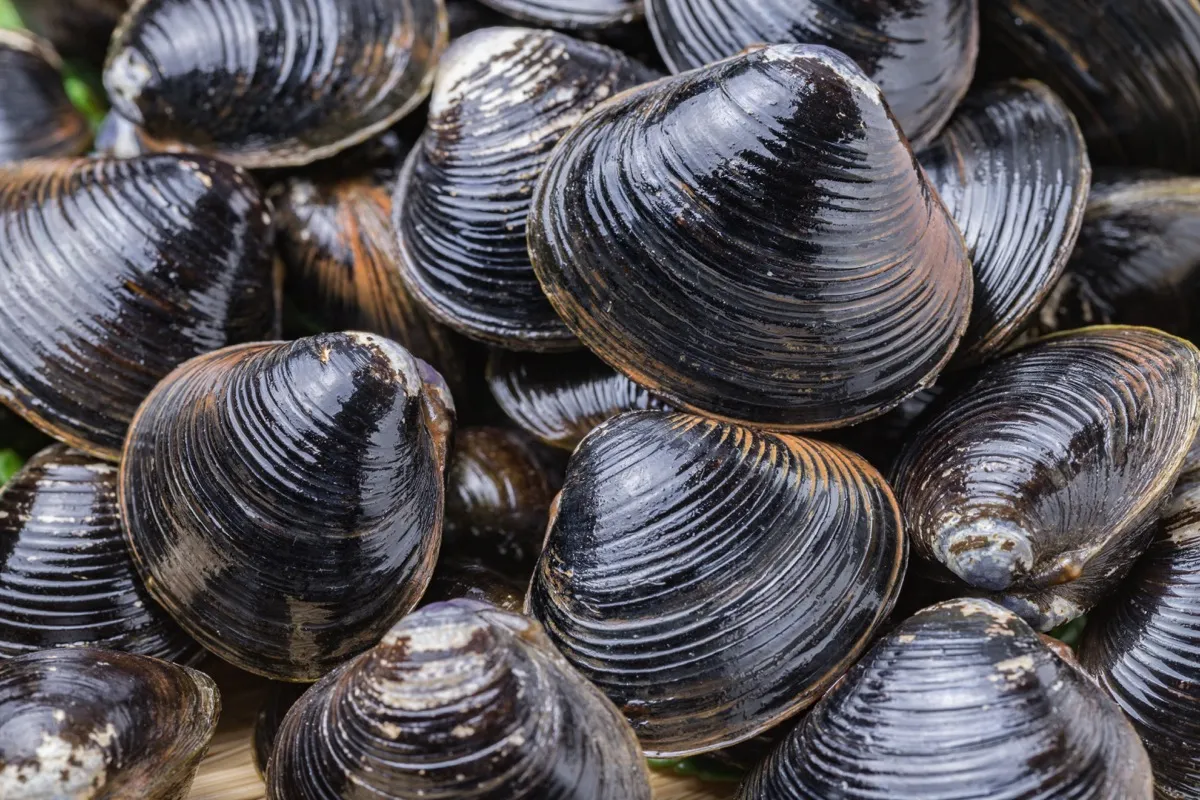
While it might look like clams have a big tongue that sometimes protrudes from their shell to poke around the ocean floor, what you're actually seeing is a foot. The appendage, relatively long in comparison to the overall size of the creature, is used to dig in the sand.
21
If all of the water on Earth fell as rain at once, the entire planet would get 1 inch of precipitation.

Most of the Earth is covered in water, which fills up our oceans, seas, lakes, and rivers. But if all of that water happened to evaporate and then come down in a giant storm, the entire planet would get 1 inch of rain. Granted, this is never going to happen outside of a sci-fi movie. But if we somehow ever witness such wonky weather, let's hope we all have an umbrella with us.
22
A piece of 10,000-year-old chewing gum was found.

People who chew gum are doing something that has been around for longer than they probably realize. In May 2019, Communications Biology published research done on gum made of birch bark tar that was around 9,540 to 9,880 years old. When analyzed, scientists discovered DNA that belonged to ancient Scandinavians, who had chomped down on the tar gum thousands of years ago.
23
Incredible Hulk was originally supposed to be gray.
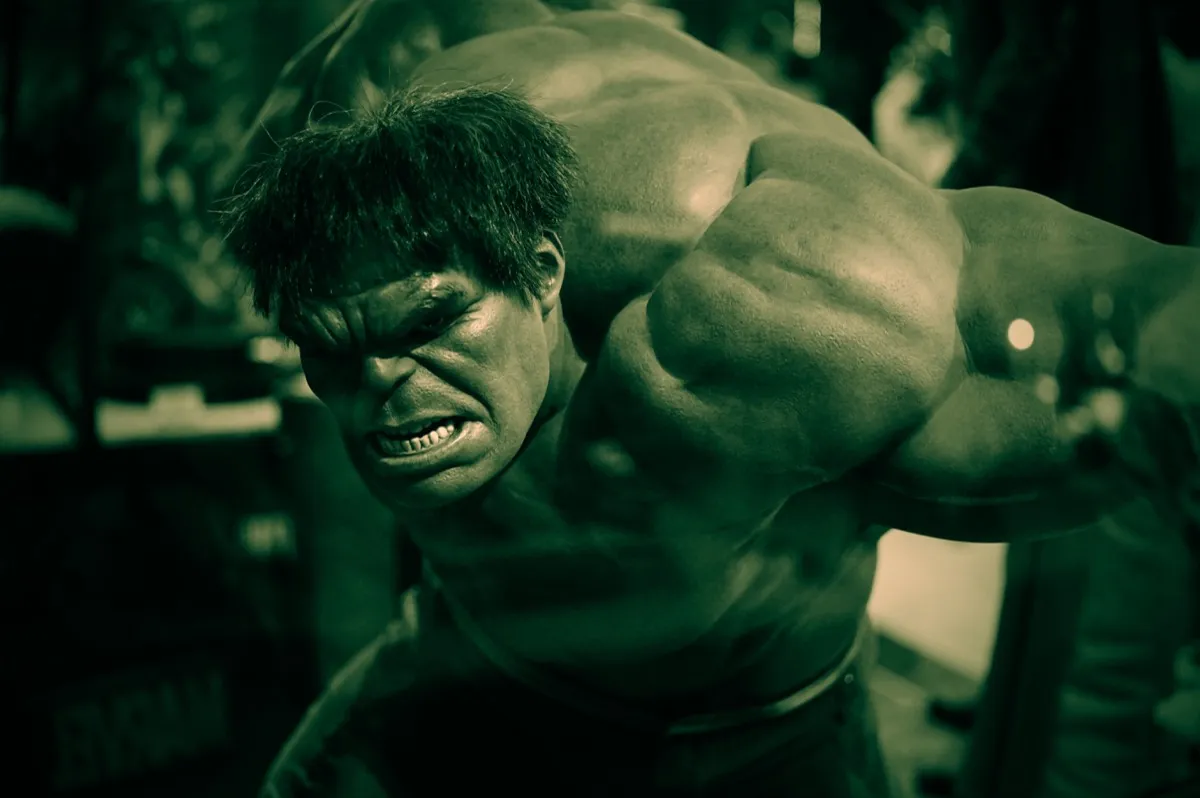
Marvel's Incredible Hulk is just as well known for his green body as he is for his testy temperament. However, it turns out that he was supposed to be a different, less monstrous color. "Originally, [comic book writer] Stan Lee and [comic book artist] Jack Kirby intended the Hulk to be gray," according to Gizmodo, who explain that the color was "very much a riff on Mr. Hyde." But things didn't go as planned when "the printing press kept having trouble with the Hulk's color and he kept coming out green." Because of this, the character only popped up in the first few issues as a furious gray figure.
24
"Mountain Dew" used to be slang for moonshine.
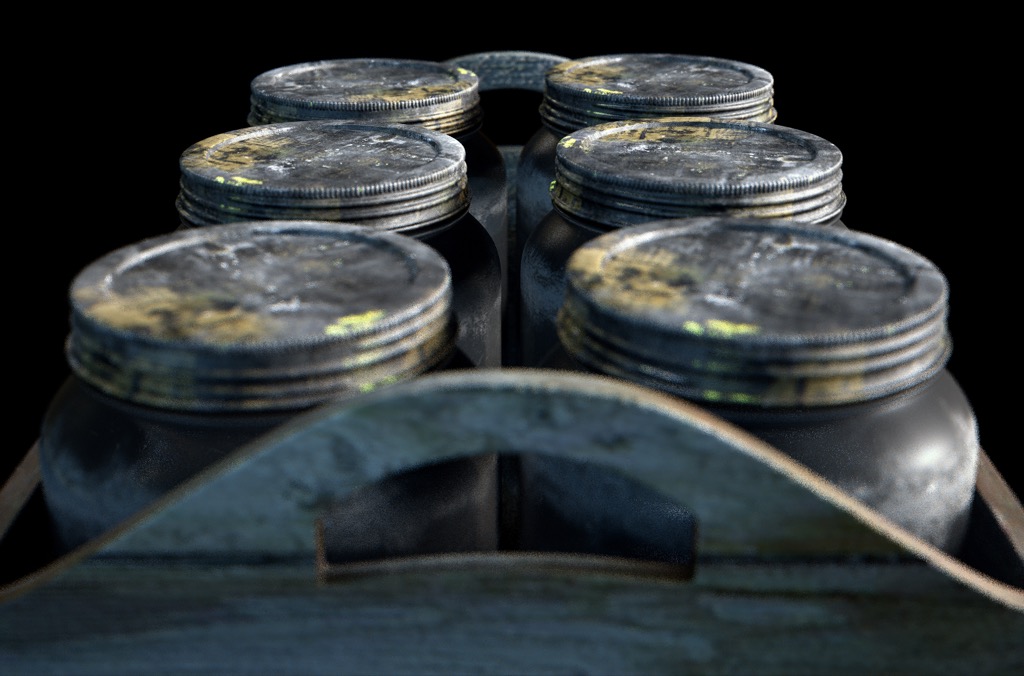
Mountain Dew may be a popular soft drink, but the name used to be slang for moonshine. To back up this claim, Smithsonian points to The Stanley Brothers' tune "Mountain Dew," which is "an Appalachian folk song that most certainly isn't talking about the soda." Instead, the lyrics refer to "good ol' mountain dew" or illegal mountain-brewed booze.
25
Japan has a phone to call the dead.

Public phone booths may be a rare sight these days, but there's one located in a Japanese hilltop garden that's especially unusual. The "wind phone" was created by a man named Itaru Sasaki, who thought that it would be a healing (if whimsical) way to talk to his cousin who had passed away—even if the conversation was one-sided. Others now also use the phone in order to feel closer to their late loved ones.
26
The nonsense phrase "umop apisdn" is "upside down" spelled upside down.

Go ahead and flip whatever device you're reading this on upside down, and check out those first two words again. You'll see that "umop apisdn" does indeed spell "upside down" using almost entirely different letters of the alphabet.
27
If you folded a piece of paper 42 times, it would be thick enough to reach the moon.

Yep, you read that correctly. According to Gizmodo, all it takes to verify this is some simple math. If you fold a piece of paper in half, it doubles in thickness. And if you fold it in half again, it doubles in thickness again. With that type of exponential growth, it would take just 23 folds for a .1-millimeter piece of paper to be one kilometer thick, and 30 folds for it to be thick enough to reach outer space (100,000 kilometers). Unfortunately, the world record for the number of folds is 12.
28
Every mammal has the same number of neck vertebrae—except for two.
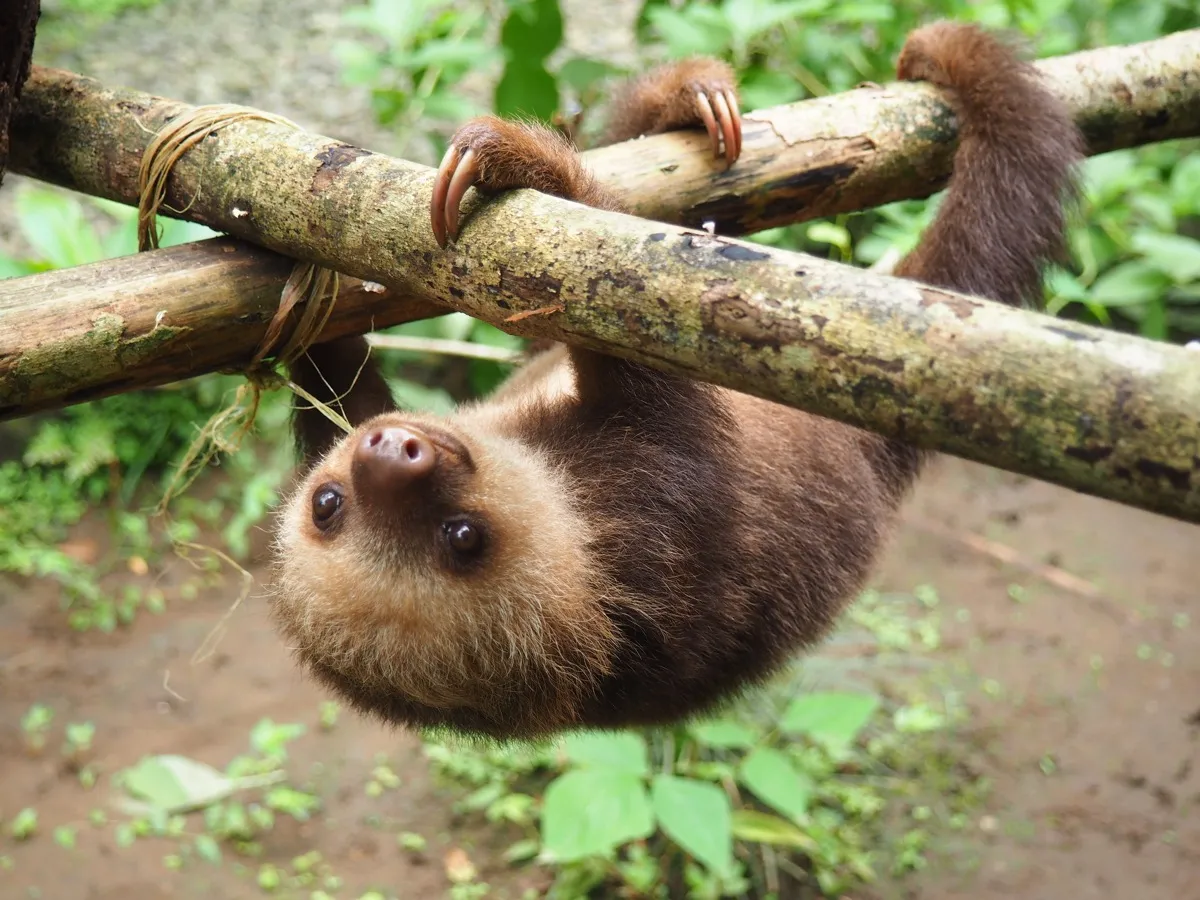
Whether it's a giraffe, a mouse, or a human, each mammal has exactly seven vertebrae in its neck. But there are two exceptions to this rule: sloths and manatees. Two-toed sloths have five to seven neck vertebrae, and three-toed sloths have eight or nine; manatees have six, according to 2011 research published in BioMed Central.
29
There is a world record for the largest collection of miniature books.

India's Sathar Adhoor has a book collection that is surprisingly huge, especially considering that it's made up of teeny tiny versions of literature. Adhoor is the owner of the world's largest collection of miniature books, which includes 3,137 unique miniature books. (Officially, a "miniature book" can be no larger than three inches in height, width, or thickness.)
30
The word "oxymoron" is an oxymoron itself.

According to Merriam-Webster, an oxymoron is "a combination of contradictory or incongruous words." They use "cruel kindness" to illustrate their point. But the dictionary also could have used the word "oxymoron" as an example—since it turns out the word is an oxymoron itself. "Oxymoron" is derived from the Greek words "oxys," meaning "sharp," and "moronos," meaning "dull" or "stupid."
31
The human heart beats more than 2.5 billion times in the average lifetime.

Your heart may beat faster when you're excited and could slow down when you're relaxed, but in most cases, it tends to keep a regular pace. In fact, most human hearts beat an average of 60 to 70 times per minute and 100,000 times per day. That's about 35 million times a year, and more than 2.5 billion times during an average lifetime, according to PBS.
32
Oxford University is older than the Aztecs.

The Aztec civilization of central Mexico began in 1325 with the founding of the city of Tenochtitlan. That seems like a long time ago—and it was! But you'd have to go back even further to witness the founding of Oxford University, which started as a learning hub as early as 1096. By 1249, the university had established itself as an educational institution with "halls of residence," which still stand today.
33
Minnesota has more shoreline than California, Florida, and Hawaii combined.

When you think of places that boast plenty of shorelines, your mind probably goes straight to the coastal states. But Minnesota—the "Land of 10,000 Lakes," or, more precisely, 11,842 lakes—actually has more shoreline than Hawaii, California, and Florida combined, according to National Geographic.
34
People used to think that some lambs grew on trees.

The "Vegetable Lamb" was thought to be an animal that grew from the Lamb Tree in the region of Tartary, an area that eventually became Europe and Central Asia. The special plant came in two different varieties, according to medieval texts (the myth has been traced back to the year 436). One grew newborn lambs inside of pods, and another produced a lamb that was attached to a stem by its belly button. The lambs were apparently hunted (or would that be gathered?) for their flesh, which tasted like fish and sweet blood. Yum!
35
"Shemomechama" is a Georgian word meaning "I accidentally ate the whole thing."
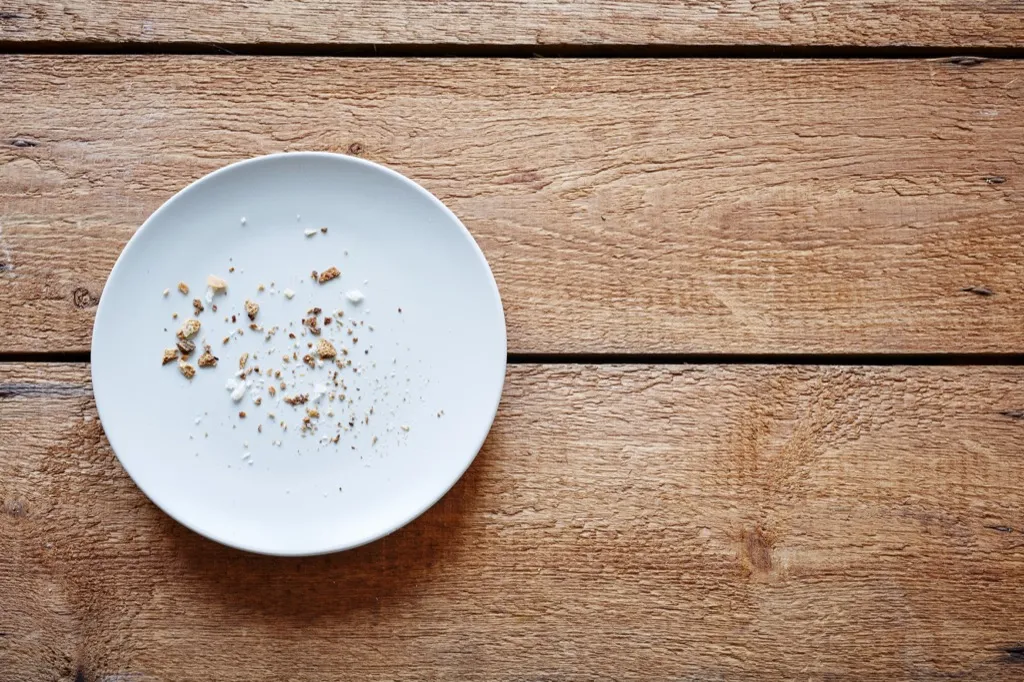
If you've ever had the intention of enjoying a nibble or two of your favorite treat but ended up devouring every last bit, then you should add "shemomechama" to your vocabulary. The Georgian word, which doesn't have an English equivalent, translates to "I accidentally ate the whole thing."
36
The world's most expensive hot dog costs $169.

The Tokyo Dog food truck in Seattle, Washington, charges $169 for its "Juuni Ban," making it the world's most expensive hot dog. The hot dog includes smoked cheese bratwurst, butter teriyaki grilled onions, maitake mushrooms, Wagyu beef, foie gras, shaved black truffles, caviar, and Japanese mayonnaise on a brioche bun.
37
There's a desert in Canada.

When you think about Canada, you probably imagine acres of forests and lots of snow. But it turns out there's also a desert in the Great White North. According to The Star, "the grasslands and bald hills outside the town of Osoyoos are an extension of the Sonoran Desert that runs as far south as Mexico and creeps north to form Canada's only arid desert." The area in British Columbia is home to 100 rare plants and 300 creatures that can't be found anywhere else in the country, such as painted turtles, scorpions, and pygmy short-horned lizards.
38
A barista set a world record for making 420 cappuccinos in an hour.

If you're heading to your local coffee shop and need your drink ASAP, then hopefully you'll end up with a barista like Liza Thomas. The Australian woman set a world record when she made 420 cappuccinos in just one hour. According to Guinness World Records, "Liza's attempt had the added pressure of taking place in public, with fellow colleagues and café goers watching her every move and enjoying the cappuccinos, which were given away as she made them."
39
Stars don't really twinkle.
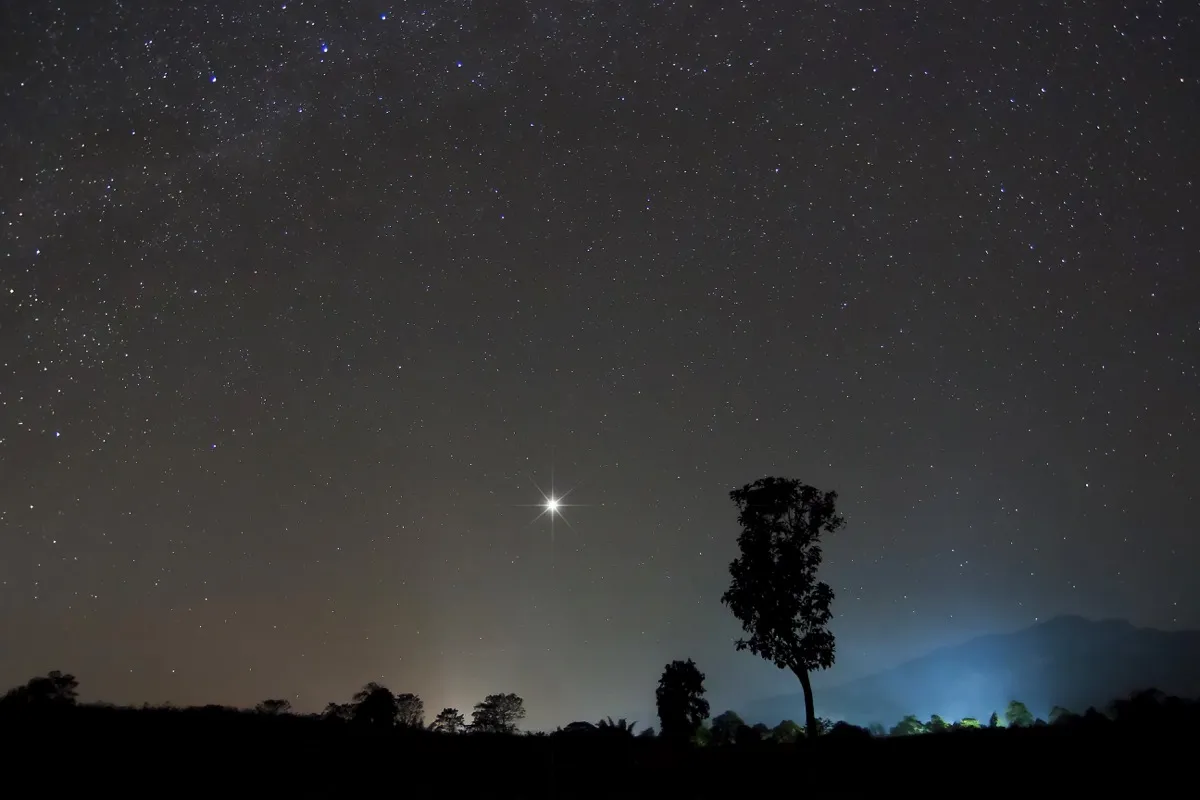
"Twinkle, Twinkle Little Star" may have led us to believe that the massive celestial bodies in the night sky are sparkling, but it turns out that the flashing we see is merely a "space mirage." The light that emanates from stars is steady and constant, but Earth's atmosphere interferes with what we witness, which is why they appear to twinkle.
40
Armadillos almost always give birth to identical quadruplets.
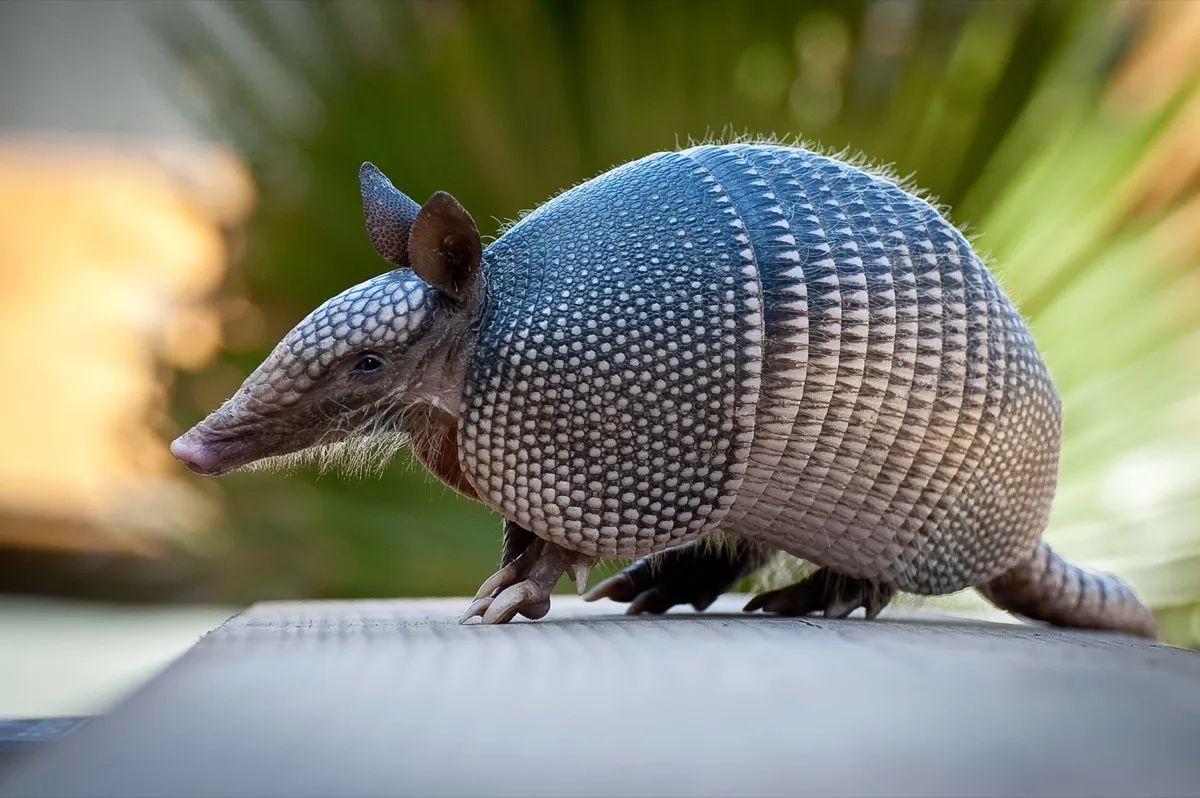
Having multiple babies at one time is normal for the nine-banded armadillo. This creature, which can be found throughout the Americas, almost always gives birth to quadruplets, with each newborn pup identical to its siblings.
41
Betty White is older than ballpoint pens, trampolines, and sliced bread.

Actress Betty White was born on Jan. 17, 1922. That means the Hollywood icon is older than plenty of things, including ballpoint pens, trampolines, microwaves, electric razors, instant coffee, garages, traffic signals, rubber tires, frozen food, sunglasses, and even sliced bread.
42
The first time a toilet appeared on TV was in 1957.

In the early days of television, there were much stricter rules about what you could and couldn't show onscreen. That's why Leave It to Beaver ran into a problem in 1957 when one script included the show's main characters keeping their pet alligator in a toilet tank. The issue was that they weren't allowed to show a toilet on TV, according to the Standards and Practices department. Ultimately, they reached a compromise: The show could feature the toilet tank as long as the bowl remained out of the shot.
43
A queen termite can live up to 50 years.
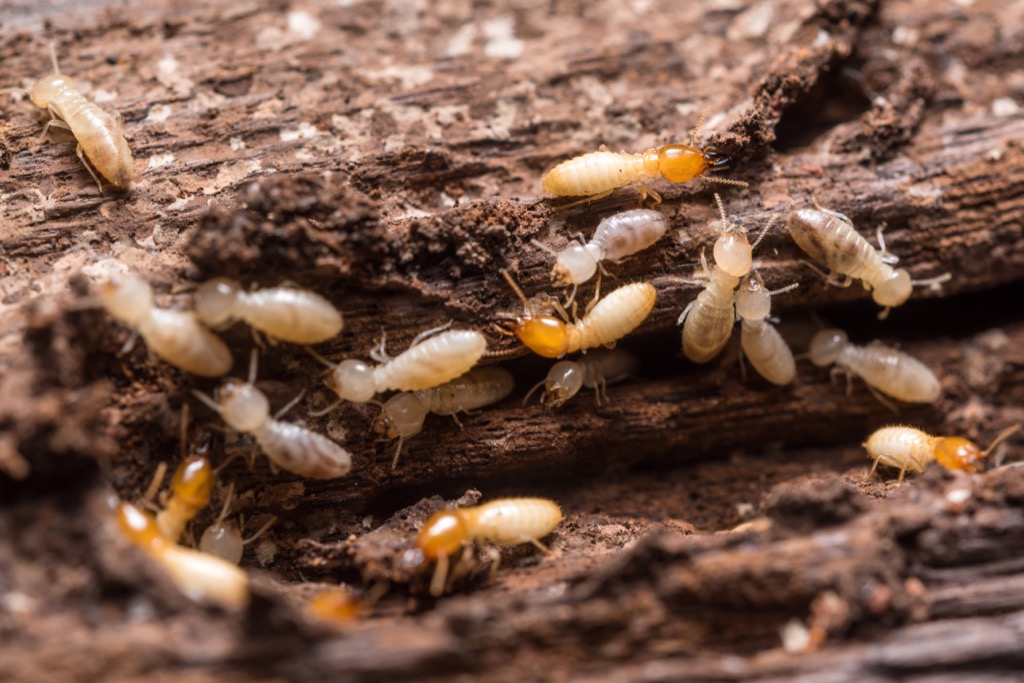
Termites are industrious little creatures capable of building massive structures for their expansive colonies. But that's not the only remarkable thing about them. The queen termite can also live up to 50 years, which is the longest lifespan of any known insect, according to Smithsonian. For comparison, worker and soldier termites live just one to two years.
44
Newborn babies don't cry tears.

On top of sleeping, eating, and pooping, babies spend plenty of their time crying. However, while they may scream and wail, newborns don't shed tears. That ability takes a while to develop, which is why parents won't start to see actual teardrops form until their baby is between two weeks and three months old.
45
Horses cannot physically vomit.
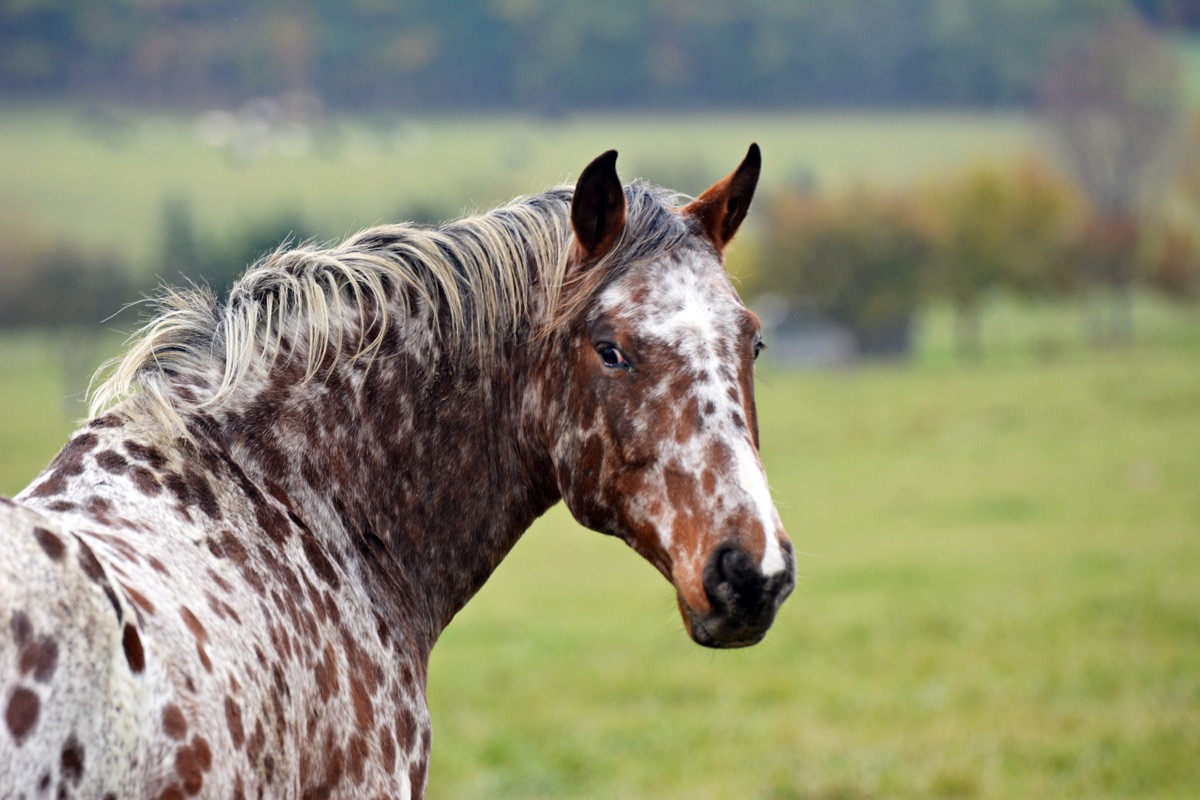
Why can't horses vomit? According to Equus magazine, horses have much stronger lower esophageal sphincters than other animals, and this makes it impossible for that valve to open under backward pressure from the stomach.
46
1816 was known as "the year without a summer."
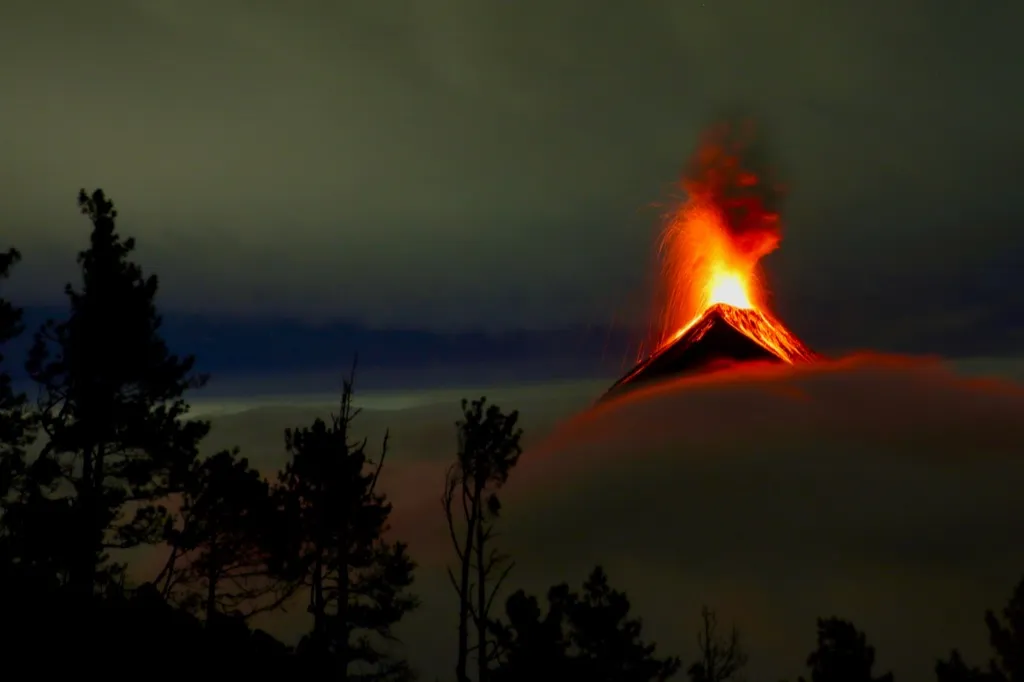
In April 1815, Mount Tambora in Indonesia experienced the biggest volcanic eruption in human history. The event, which lasted an unimaginable two weeks, blew countless tons of dust, ash, and sulfur dioxide into the Earth's atmosphere. That blanket of ash shielded the planet from the sun, which led to "the year without a summer." According to USA Today, parts of New England saw heavy snow falling in June, and a deadly frost set in during July and August.
47
The average cloud weighs an estimated 1.1 million pounds.

Clouds may look like giant fluffy puffs of cotton, but they're actually quite hefty. According to the U.S. Geological Survey (USGS), the average cloud weighs around 1.1 million pounds (551 tons). Despite their immense weight, "that 'heavy' cloud is floating over your head because the air below it is even heavier—the lesser density of the cloud allows it to float on the dryer and more-dense air."
48
Human teeth are just as strong as shark teeth.
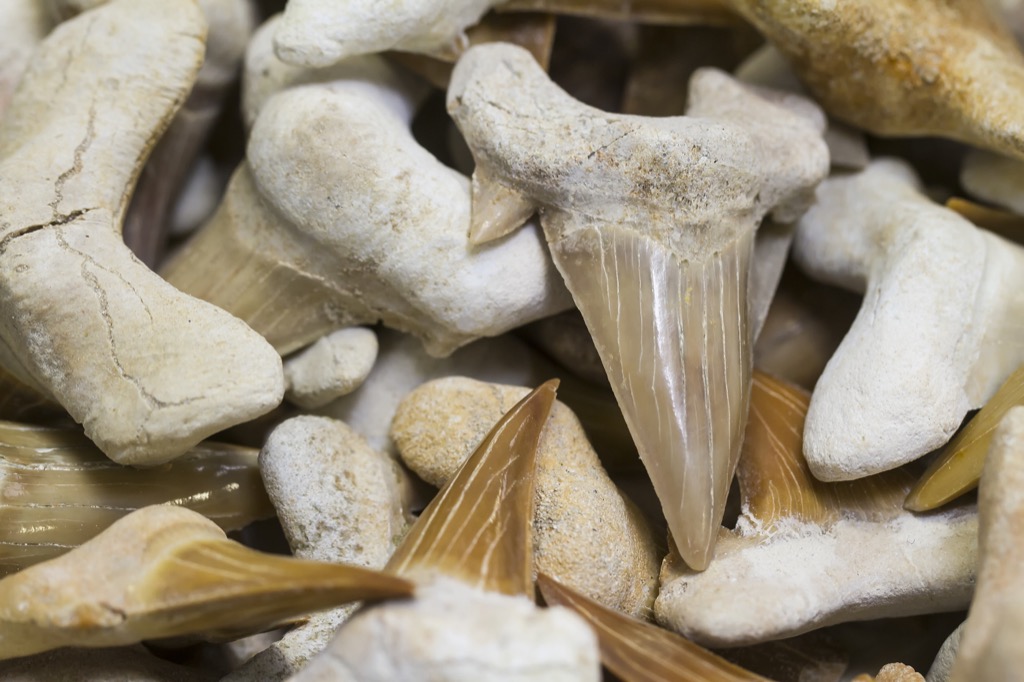
A shark's teeth might be more feared, but human teeth are just as strong. According to a 2012 study in the Journal of Structural Biology, the enamel on a human wisdom tooth is just as hard as the enamel coating on shark teeth. Both are made of mineral crystals bound together with proteins, which prevent teeth—shark and human alike—from shattering under a sudden impact.
49
The smell of chocolate makes people want to buy romance novels.
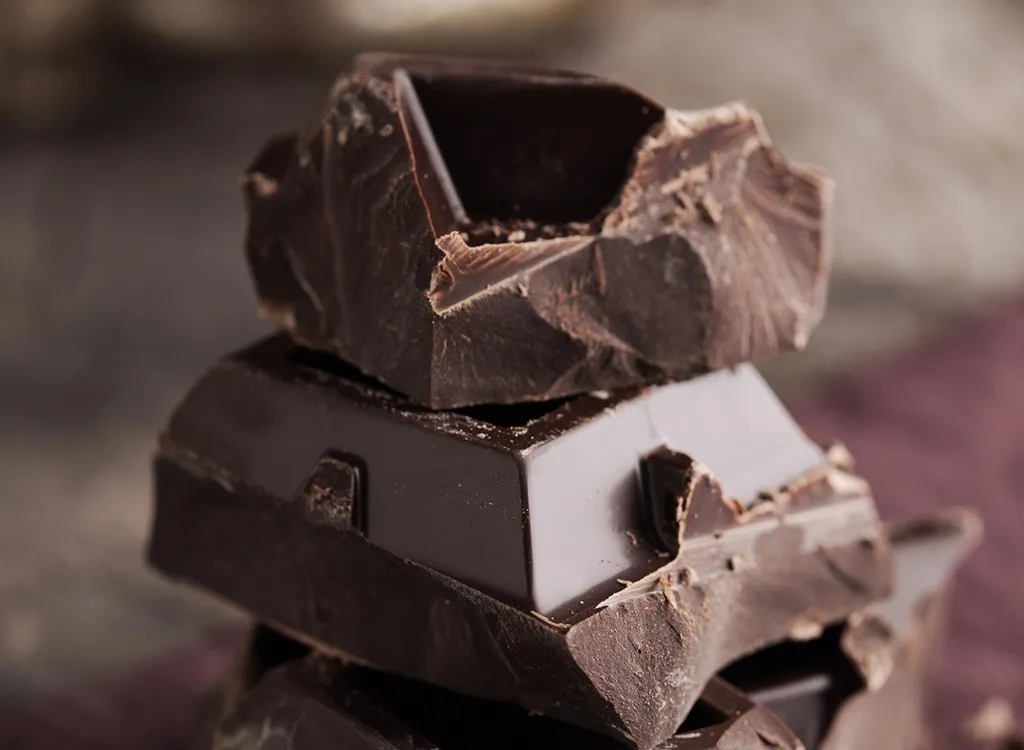
The thought of romance conjures images of champagne and roses, sweet music, and even sweeter treats. In fact, so many people associate the smell of candy with a lovey-dovey vibe that 2013 research published in the Journal of Environmental Psychology found that the smell of chocolate in a bookstore makes people want to buy romance novels.
50
Cleopatra lived closer in time to the moon landing than to the construction of the Great Pyramid of Giza.
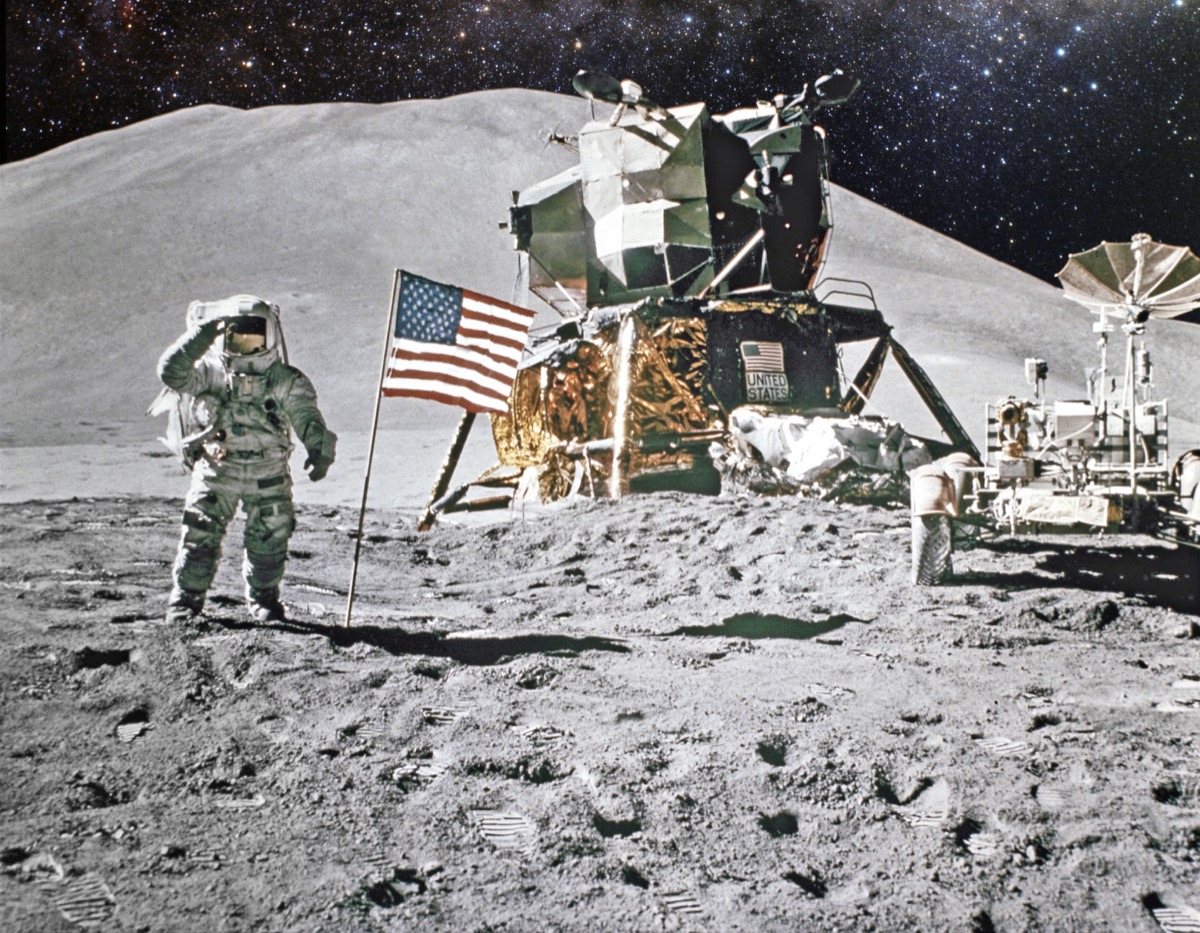
Cleopatra is easily one of the most famous rulers of Egypt, but she actually lived closer to the moon landing than to the construction of the Great Pyramid of Giza. The queen died in 30 B.C., while the great pyramid of Giza was built around 2560 B.C. That means that the pyramid was completed more than 2,500 years before Cleopatra's time.
51
The largest scoop of ice cream weighed more than 3,000 pounds.
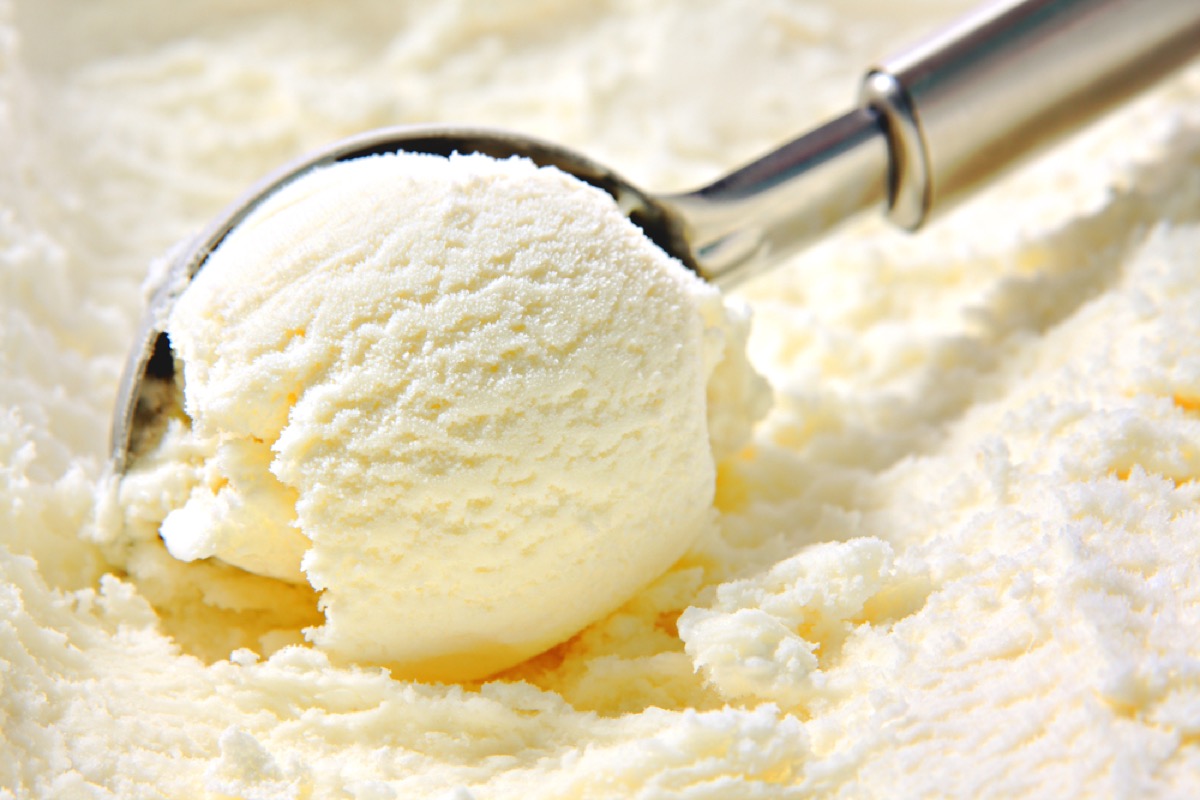
I scream, you scream, we all scream for ice cream! And fans of the chilly treat will surely squeal over the largest scoop of ice cream ever, which weighed 3,010 pounds. In June 2014, Kemps in Cedarburg, Wisconsin served up a strawberry-flavored scoop that measured nearly 6 feet by 6 feet. It took around 733 household containers of ice cream to create the massive serving, which was put together by five nationally ranked snow sculptors before being portioned out and handed off to attendees at the Cedarburg Strawberry Festival.
52
The human nose can detect more than 1 trillion smells.

In the past, scientists believed that humans could only smell around 10,000 different scents. However, according to a 2014 study published in Science, we may actually be able to detect around 1 trillion smells. "People have been talked into this idea that humans are bad at detecting smells," said Rockefeller University neurobiologist Leslie Vosshall, who led the study. Incredibly, it seems like we're not so bad at it at all!
53
Playing Portal 2 is better for your brain than brain-training apps like Lumosity.

If you use brain-training apps like Lumosity or have been thinking about trying one out, you might want to consider giving the game Portal 2 a shot. That's because a 2014 study published in the journal Computers & Education found that the puzzle-solving video game is actually better for your brain than apps that are specifically designed to sharpen your cognitive abilities. It can help you with problem solving, spatial skills, and even your level of persistence.
54
"Kummerspeck" is the German word for the weight you put on from emotional eating.

At times, when you're sad or stressed, picking up your favorite takeout or indulging in a delicious dessert can be a simple way to make yourself feel a little better. But if you overindulge in too many treats, then you might notice a little "kummerspeck," which is what Germans call the weight you put on due to emotional eating. Hilariously, it literally translates to "grief bacon."
55
President Ulysses S. Grant was arrested for speeding on a horse.
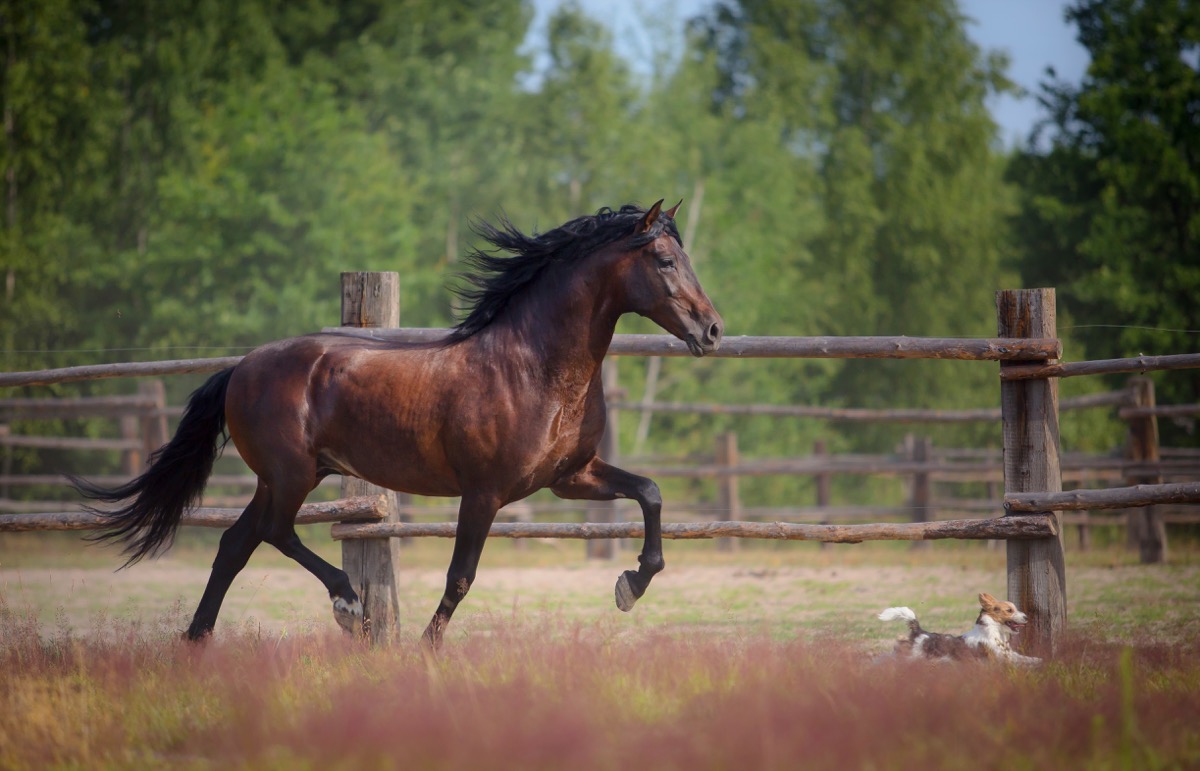
Ulysses S. Grant, the 18th president of the United States, didn't always follow the law, even while he was in office. The skilled equestrian enjoyed traveling at high speeds, which was illegal. When Grant was caught going at a so-called "furious pace," he was given a firm warning by police officer William H. West. Although Grant apologized, he was caught speeding the very next day by the same officer. As a result, he was arrested and taken to the police station, where he was booked and fined for his offense.
56
Your mouth produces about one liter of saliva a day.

You may find that your mouth gets a little dry when you're nervous. But on most days, you produce about one liter of saliva.
57
Scientists found nearly 1,500 new bacteria species in belly buttons.

When a team from North Carolina State University took a look at what was inside the belly buttons of 60 different people, they found a "rain forest" of microscopic life. In total, they identified 2,368 bacterial species, 1,458 of which may be new. According to National Geographic, the belly button of "one science writer, for instance, apparently harbored a bacterium that had previously been found only in soil from Japan—where he has never been. Another [volunteer], who hadn't washed in several years, hosted two species of so-called extremophile bacteria that typically thrive in ice caps and thermal vents."
58
Human bodies give off a tiny amount of light that glows.

Being a human that glows sounds like something out of a superhero movie. But it turns out that all bodies emit a tiny amount of light. "The human body literally glimmers," wrote researchers in a 2009 study published in PLoS One. While it's pretty cool to think of our bodies shimmering like a diamond, the scientists also explained why we can't see the shiny sheen, writing, "The intensity of the light emitted by the body is 1,000 times lower than the sensitivity of our naked eyes."
According to The Guardian, this glow is "the result of highly reactive free radicals produced through cell respiration interacting with free-floating lipids and proteins. The 'excited' molecules that result can react with chemicals called fluorophores to emit photons."
59
The largest turtle ever recorded weighed more than a ton.
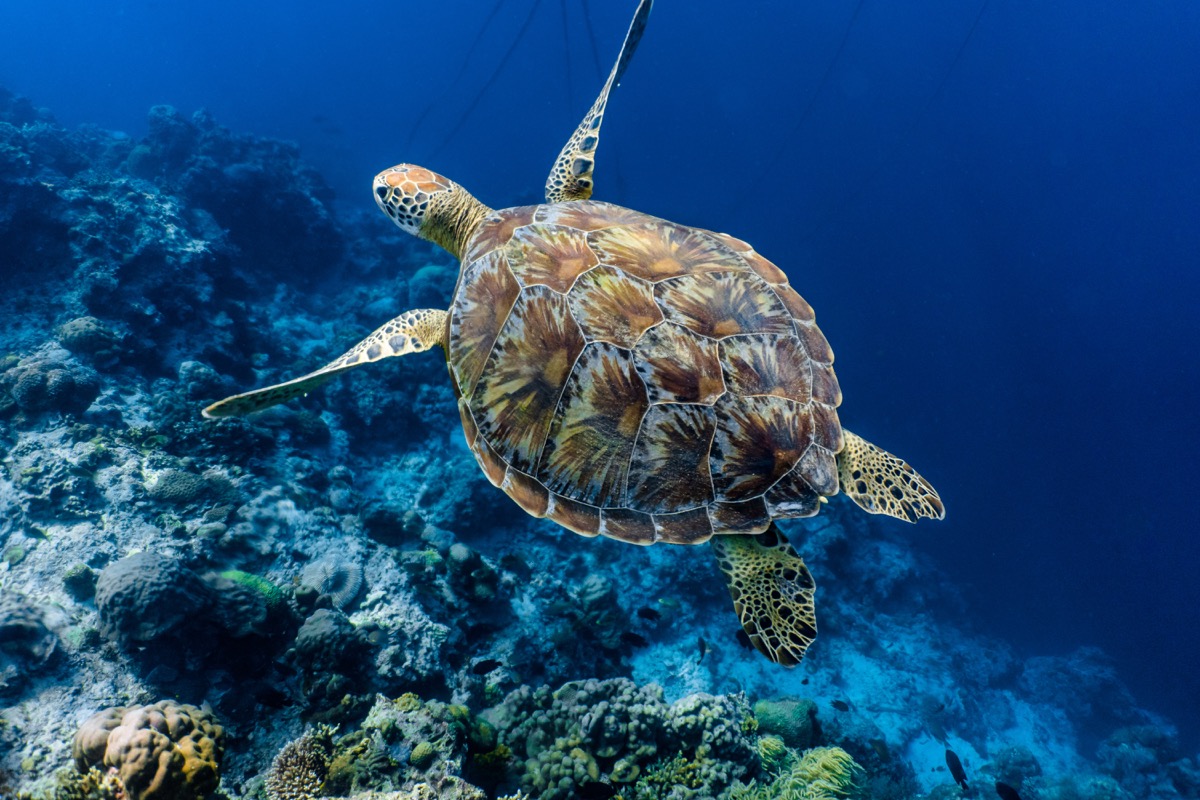
The largest and heaviest turtle ever recorded was a leatherback that washed ashore in the United Kingdom in Sept. 1988 after it had drowned when it was trapped in a fishing line. Around 100 years old at the time of its death, the turtle was almost 9 feet long and weighed 2,016 pounds.
60
The gold in Earth's core could cover the planet in a knee-high layer.
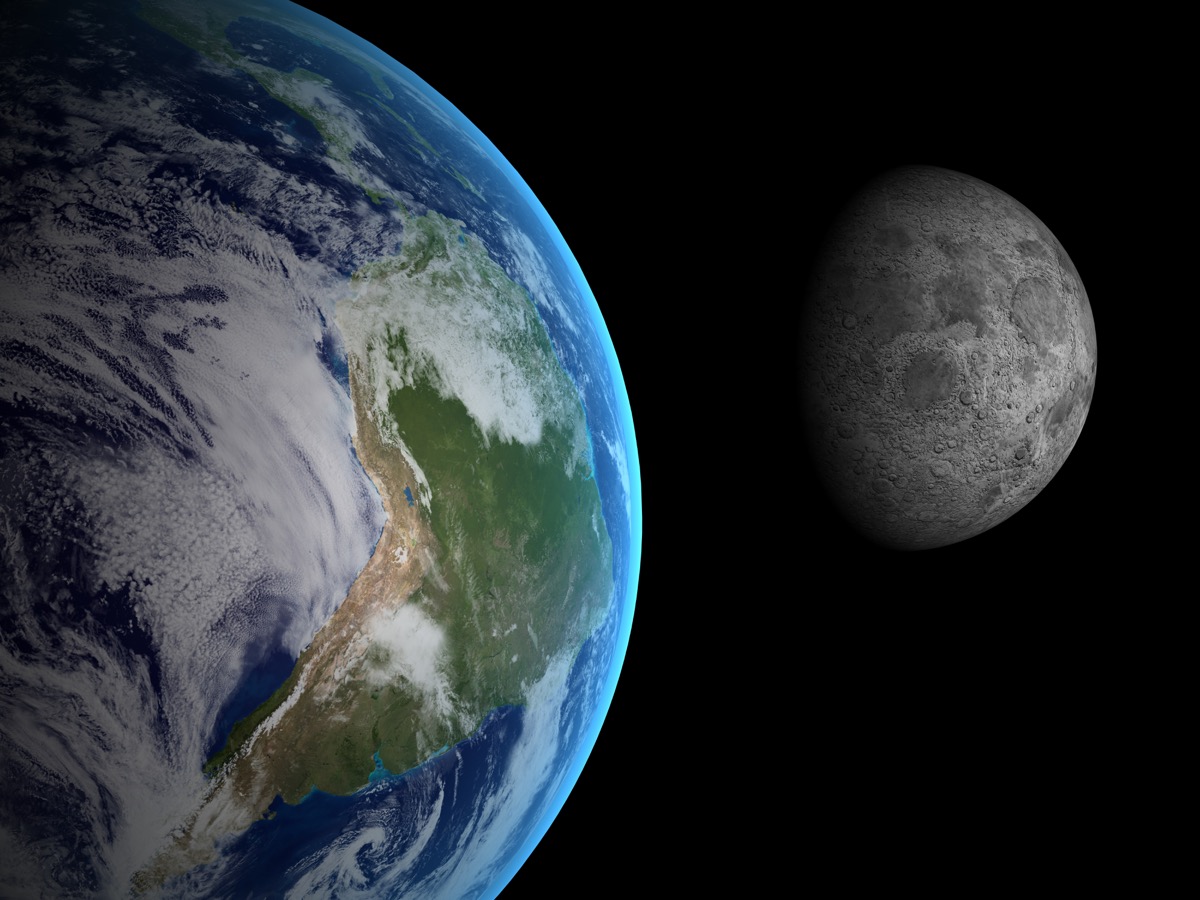
Down in Earth's core, there's a stash of gold that sank to its current location when the planet was still in a molten state. In fact, there's so much of the precious metal down there that if it were to cover Earth's surface, it would create a layer that was about 13 inches thick.
61
A million seconds is about 12 days while a billion seconds is about 32 years.

A million dollars may sound almost as good as a billion, but that's only because the average person has no concept of the staggeringly vast difference between the two amounts. However, The New York Times breaks it down for us by using time as an example. "It would take almost 12 days for a million seconds to elapse and 31.7 years for a billion seconds," according to a 1986 article. Yeah, that's a huge difference. On top of that, "a trillion seconds would amount to no less than 31,709.8 years."
62
Americans thought tomatoes were poisonous until the early 19th century.
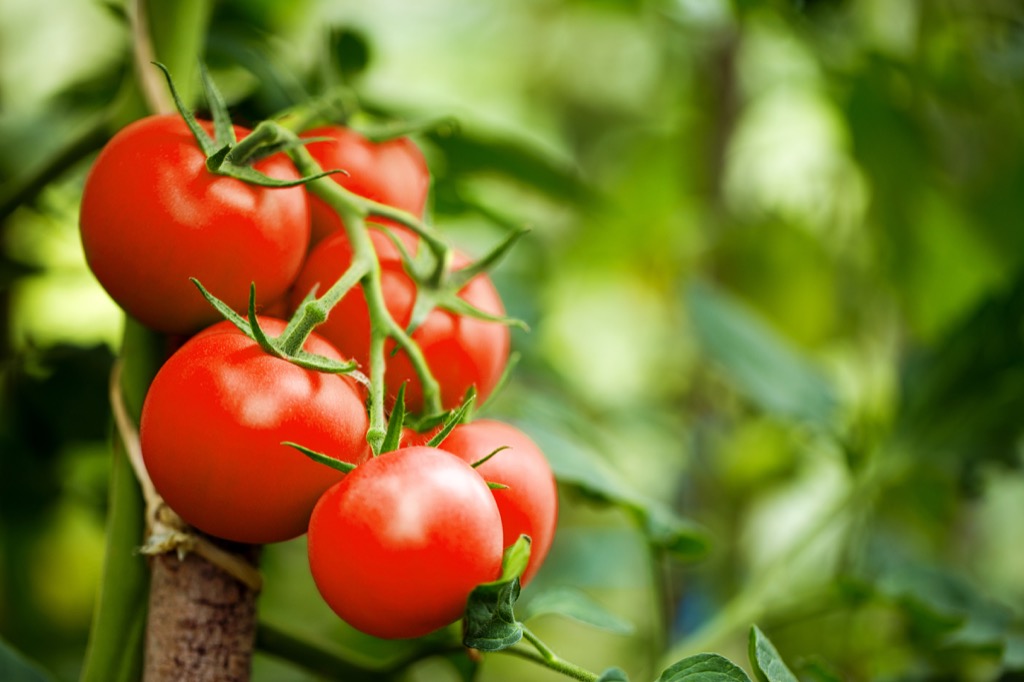
Back in the 1700s, people deemed tomatoes "poison apples." That's because tomatoes are highly acidic, and so when European aristocrats ate them off their pewter plates, the food leached lead from the dish and passed it on to the diner. That resulted in lead poisoning, which could sometimes cause death, according to Smithsonian. The "poison apple" myth prevailed in Britain and its North American colonies for more than 200 years, until it was dispelled in the early 18oos.
63
Radioactive particles from the Cold War were found in the deepest parts of the ocean.
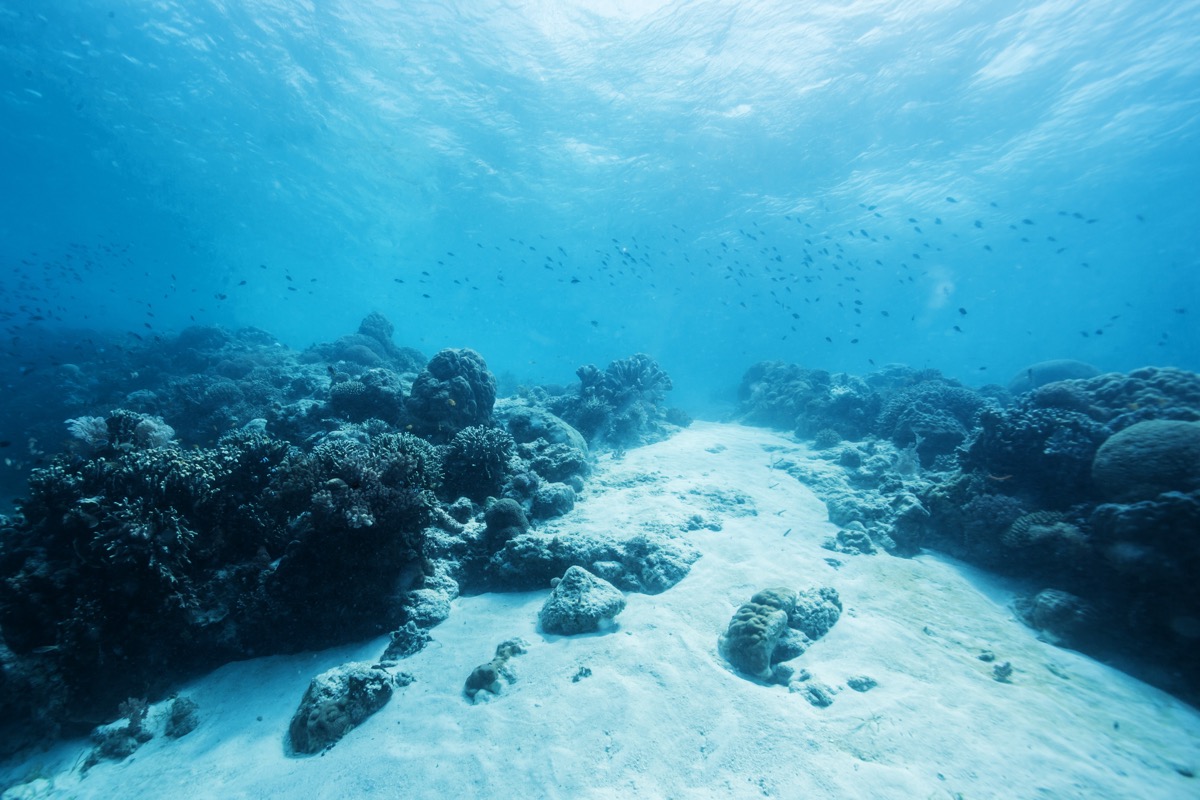
We're well aware of the destructive power of nuclear bombs. But now scientists have discovered another lasting consequence of the deadly force: Findings published in 2019 in Geophysical Research Letters revealed that radioactive particles that originated from atomic bomb tests between the 1940s and the 1960s were detected in crustaceans that live in the deepest part of the ocean, the Mariana Trench.
According to Smithsonian, "from 1945 to 1963 the United States and the Soviet Union (with a little help from the United Kingdom and France) detonated nearly 500 nuclear bombs, 379 of which exploded in the atmosphere. These tests dramatically increased the amount of carbon-14 on our planet. The Test Ban Treaty of 1963 put a stop to most atmospheric and underwater tests, and carbon-14 levels in the atmosphere started a slow return to normal—though they are still higher than pre-nuclear levels—as ocean waters and land-based life absorbed carbon from the air."
64
Pieces of the same metal become permanently stuck together if they touch in space.

If you're on Earth and want to attach two pieces of metal to each other, you'll need some pretty intense heat to do the trick. But in space, two pieces of metal will be permanently stuck together if they touch, thanks to something called "cold welding." The freezing fusing phenomenon was discovered during 1965's Gemini IV mission when astronauts were temporarily unable to close a hatch after a spacewalk because the door's metals had fused when exposed to space.
65
Viagra can help plants stand up straighter and last longer.

Viagra may typically be prescribed to humans, but it also gives plants a boost, helping them stand up more erect and last longer. According to Israeli scientist Ya'acov Leshem, from Bar-Ilan University, flowers that had been given Viagra "looked much fresher [and] their [color] remained longer."
66
Cows moo in regional accents.
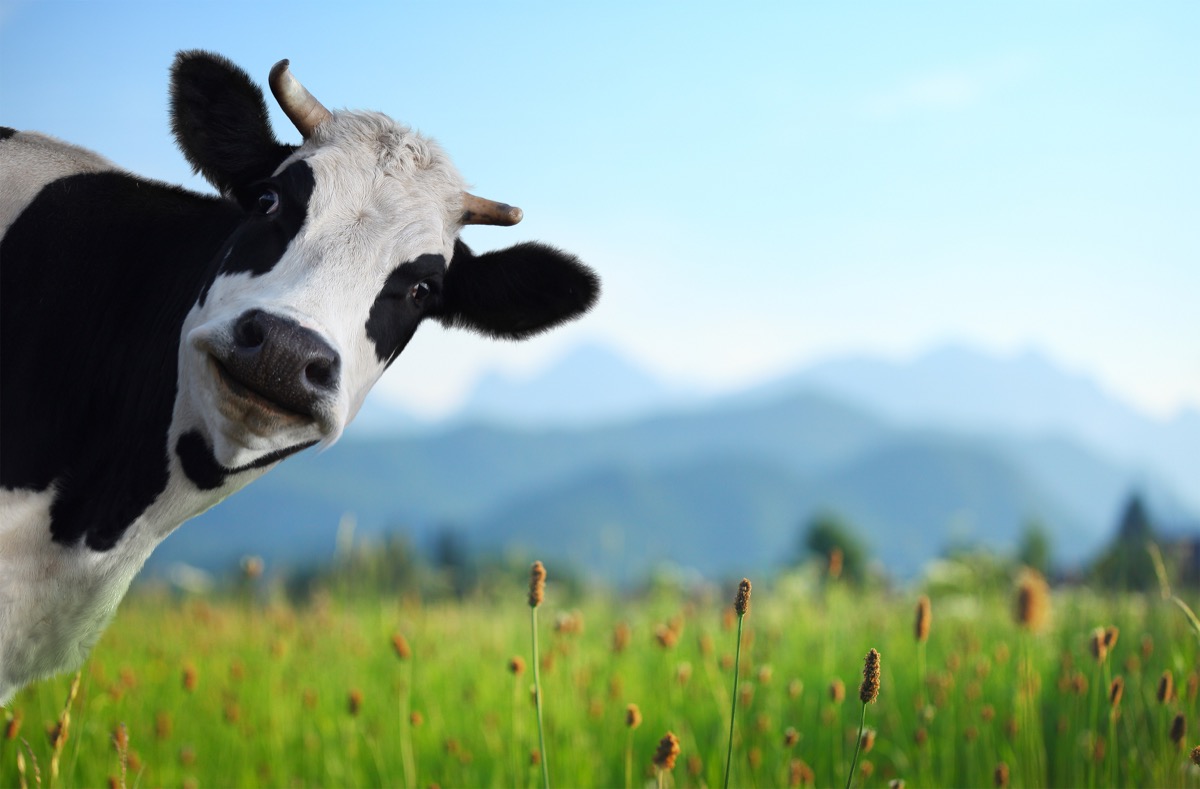
Language experts have suggested that cows have regional accents just like humans. According to the BBC, this phenomenon was first detected by dairy farmers who noticed that their cows had different moos, depending on what herd they came from. Very moooo-ving indeed.
67
Barns weren't always intentionally red

Ever notice how pretty much every barn you see is painted red? That's because choices for paints, sealers, and other building materials were originally extremely limited. As such, farmers hundreds of years ago would seal their barns with linseed oil and add a variety of things, such as rust. It was an effective sealant, but it turned the mixture red in color. When more paint became available, many farmers chose to continue to paint their barns red in honor of tradition.
68
The hashtag (#) symbol isn't actually called a hashtag.

If you want to be super technical, the real term is octothorpe. In terms of etymology, the "octo-" refers to "eight," which is in reference to the points on the symbol. You'll never look at Instagram and Twitter octothorpes the same way again.
69
The "H" and "M" in H&M stem from its hunting and fishing roots.

Ever wonder what the clothing retailer H&M's initials actually stood for? The Swedish company, founded in 1947, was originally called Hennes, which translates to "Hers." In 1968, Hennes acquired the brand Mauritz Widforss, which sold hunting and fishing equipment. As a result, the company then became Hennes & Mauritz. Finally, in 1974, the brand shortened its name to H&M.
70
Yawning is biological air conditioning.

Originally thought to be a social cue, a series of experiments actually suggests a different reason for this bodily function. As Andrew C. Gallup, PhD, a postdoctoral research associate at Princeton University, told WebMD, the reason for yawning might be that it cools the brain. The stretching of the jaw to yawn increases blood flow in the neck, face, and head. In conjunction with that, the deep intake of breath forces a downward flow of spinal fluid and blood from the brain. The air breathed into the mouth cools these fluids.
71
Our taste buds grow up with us.

Have you noticed that spinach became easier to eat as you grew older? Or maybe it was anchovies or olives. Whatever the food, a 2015 survey conducted by Butterkist revealed some insights as to why this might be, as The Telegraph reported.
According to Butterkist's research, each person is born with approximately 10,000 taste buds that are replaced around every two weeks. However, as we get older, taste buds stop being replaced, and those numbers start to decrease. This causes flavors that were too intense when we were younger to become more palatable as we age.
72
There's a top-secret Starbucks for CIA agents.

When you're a CIA agent, it's extra important to stay caffeinated. Enter the world's most top-secret Starbucks. According to The Washington Post, it's listed as Store Number 1 on receipts, and its baristas must go through extensive and rigorous interviews and background checks. In order to leave their post, they must be escorted by agency "minders." Oh, and—as you might have guessed—names aren't written on the iconic cups.
73
Scotland has more than 400 words for "snow."

What better way to cope with the cold than by learning all 421 Scottish words for "snow." This was discovered when academics at the University of Glasgow underwent a project to compile a Scots thesaurus, called the Historical Thesaurus of Scots. Some words include: "snaw" (snow), "sneesl" (to begin to rain or snow), and "skelf" (a large snowflake).
74
The inventor of the microwave wasn't trying to create a microwave.

The microwave is an example of a brilliant invention that was stumbled upon when the inventor was trying to create something totally different. In this case, Raytheon engineer Percy Spencer was testing a radar magnetron (which Popular Mechanics describes as a "sort of electric whistle that … creates vibrating electromagnetic waves").
As he was experimenting with improving the level of the magnetron tubes, he realized that the peanut cluster bar in his pocket had melted. After testing the mechanism with an egg and corn kernels, he realized he'd stumbled on something potentially far more useful than the problem he was supposed to be solving.
75
Chicago's nickname has nothing to do with the weather.

Sure, the city gets cold in the winter, and wind definitely plays a role, but the nickname "the Windy City" has nothing to do with that. According to the Chicago Historical Society, the term "Windy City" was first coined by 19th century journalists to describe the people who find themselves in the city's elite. It was meant as a criticism, referring to this particular designation of people as "full of hot air."
76
Whales swallow half a million calories in a single mouthful.
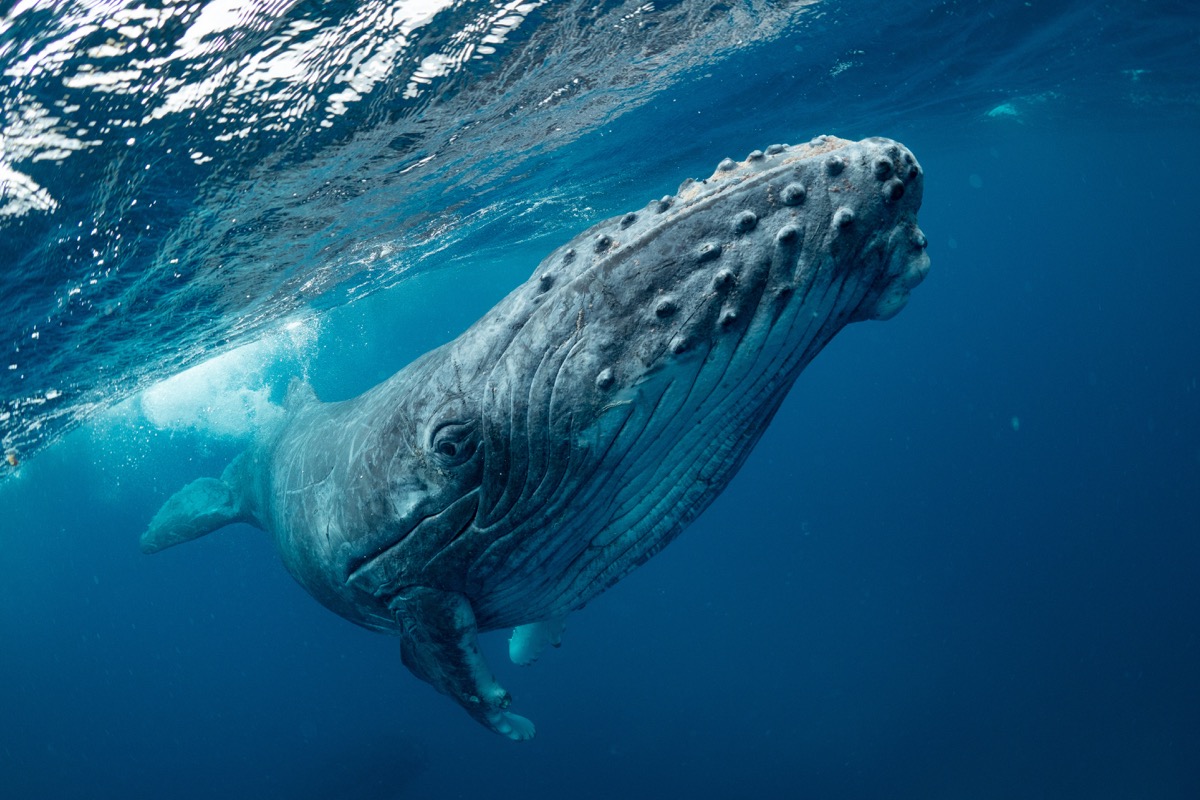
Or, specifically, around 457,000 calories, according to a 2011 study in the Journal of Experimental Biology. Many whale species take in oversized mouthfuls of ocean water and filter out the krill and other small ocean life for consumption using their baleen plates. They're the Michael Phelps of the ocean world. (The swimmer has been said to eat 12,000 calories a day.)
77
A majority of the Sahara Desert is covered in gravel.

Not sand. Gravel. The Sahara, which is the largest desert in the world, fills nearly all of northern Africa with tiny rocks that are red, black, and white.
78
There's a year-round ice hotel.
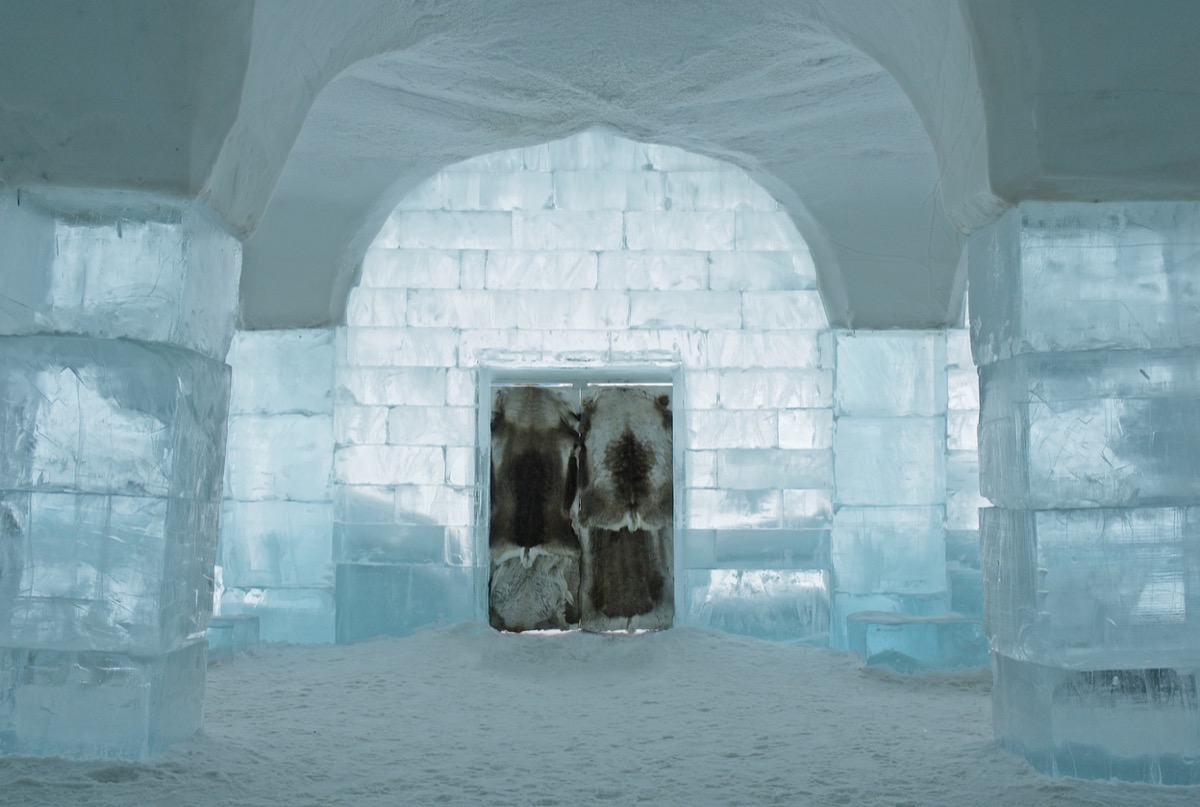
Icehotel is a world-famous hotel and art exhibition made of ice and snow. It was founded in 1989, and it's literally rebuilt every year in the Swedish village of Jukkasjärvi. Now, there is also Icehotel 365, a permanent structure that includes 20 luxury suites and a large ice bar that serves champagne. This one can be visited year-round, and is cooled by solar panels during the summer.
79
Movie trailers used to screen after the feature film.

This is why they're called trailers—because they used to "trail" the main attraction. The first trailer premiered in 1912, but it was for a Broadway show (The Pleasure Seekers), not a movie. Gradually, trailers started spreading in popularity. Originally, they were produced by theaters themselves, but by 1916, movie studios took the reins.
80
George Washington never actually lived in Washington, D.C.

That's right: The first president of the United States never lived in Washington, D.C. He lived in New York, the nation's first capital, and Philadelphia. John Adams was actually the first U.S. president to live in D.C. And as for why Washington never lived in the White House? He died before the establishment was finished.
81
Giraffe tongues are nearly two feet long.

Giraffe tongues grow up to 18 to 20 inches. These appendages have to be sizable to navigate around the long spikes of the Vachellia and Senegalia plants they typically consume for sustenance.
82
Greeks and Romans used to use crocodile dung as skincare.
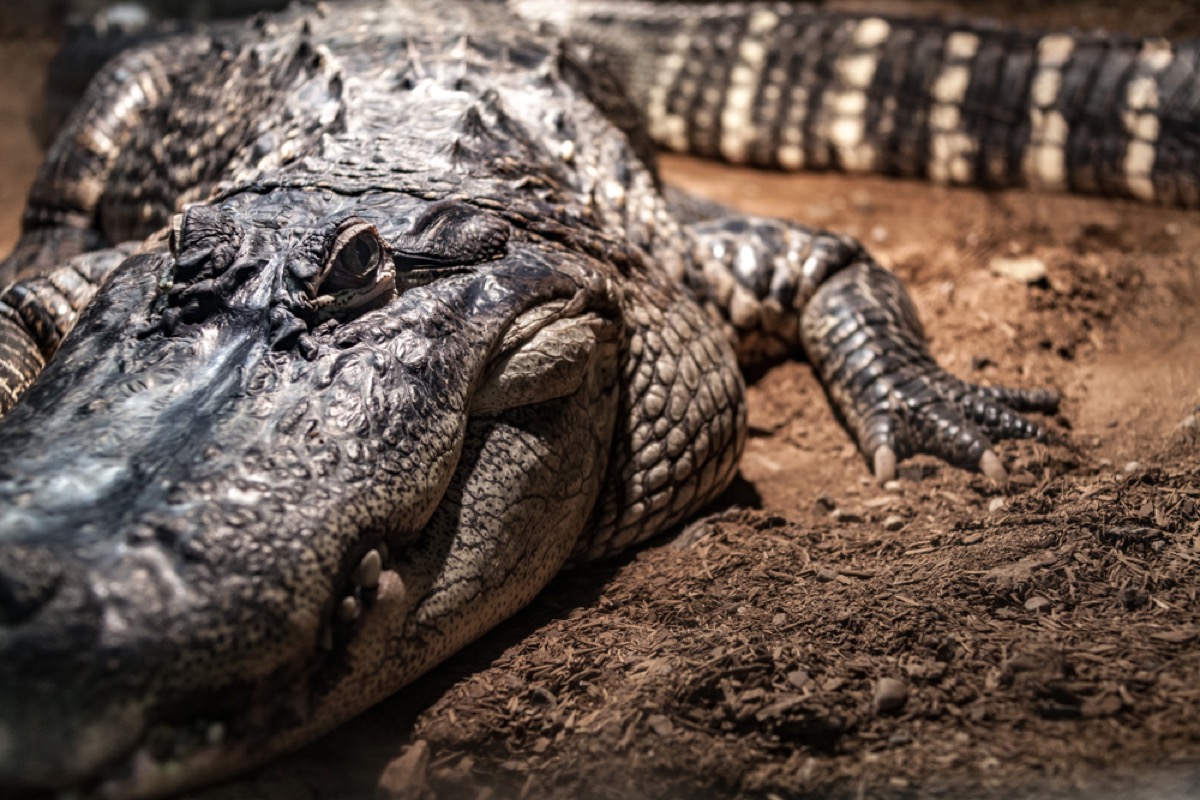
The ancient Greeks and Romans believed that crocodile feces was beneficial for the skin, and frequently used the substance as an early anti-aging treatment. According to plastic surgeon Terry Dubrow, MD, the substance was frequently combined with mud to create face masks.
83
More people drown in deserts than die of thirst.
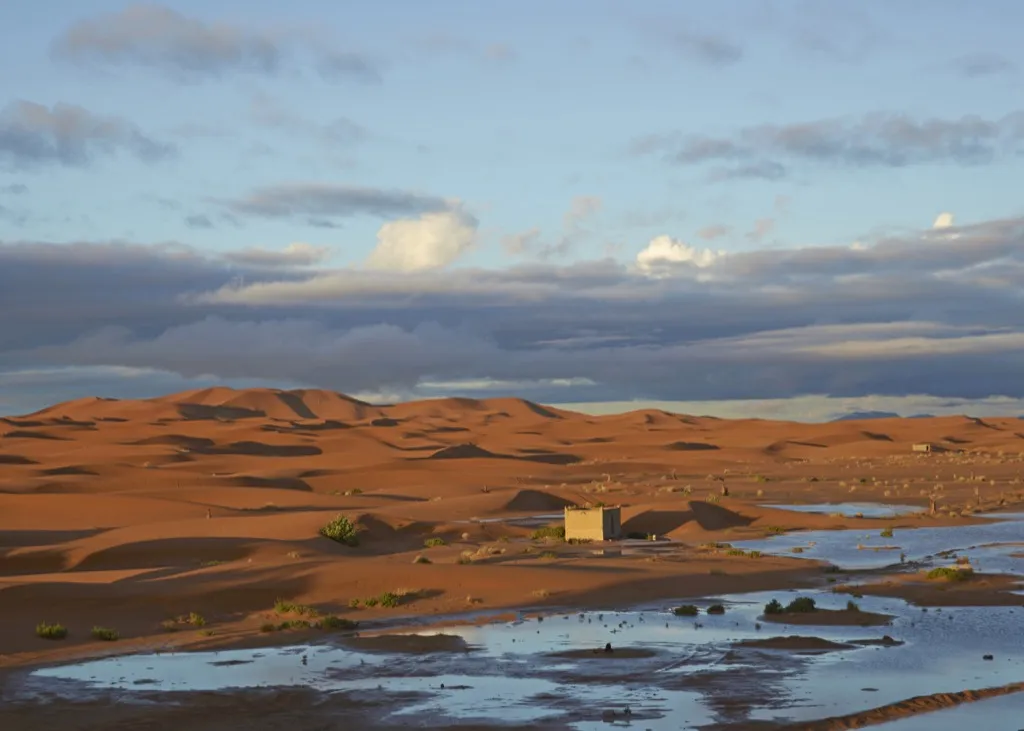
One would assume that dying of thirst and dehydration would be the leading cause of death in the desert, but surprisingly, it's drowning, according to the USGS. Though precipitation in the desert is infrequent, when it does rain, it comes on suddenly and very heavily. Since deserts don't have water drainage systems in place, and the rains fall too fast for the dry, clay-like soil to absorb the rainfall, water overflow becomes excessive. This also results in quicksand and sandstorms, which can lead to drowning by sand.
84
It takes up to two weeks to make a jelly bean.
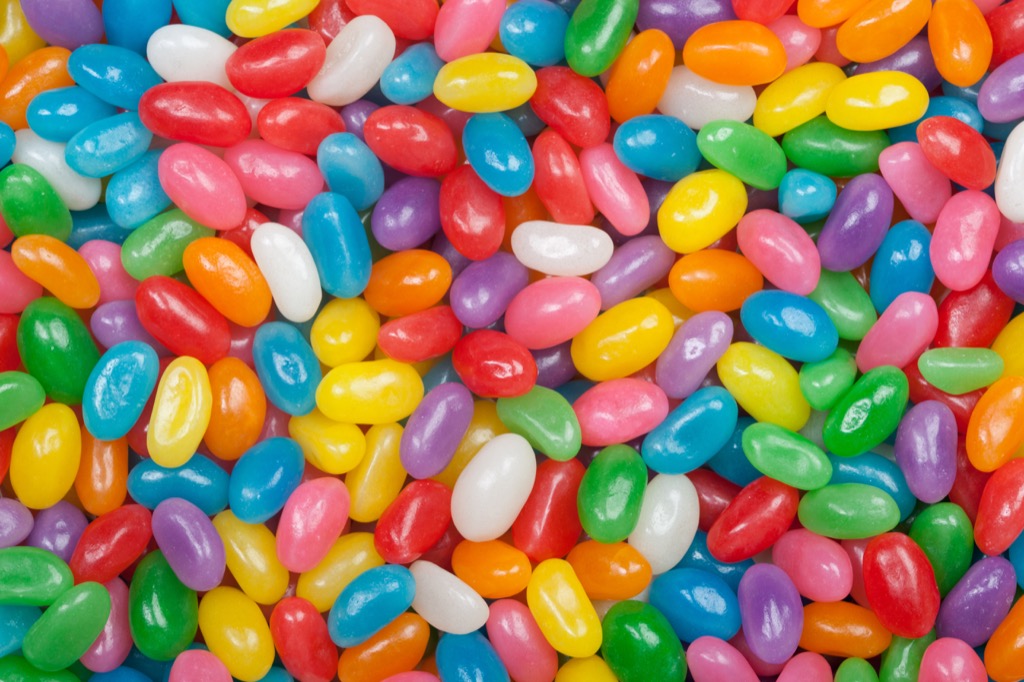
Making jelly beans can take up to 14 days, according to Jelly Belly. Think about this the next time you simply toss the flavor you don't like.
85
Wasps are more likely to attack at the end of summer.
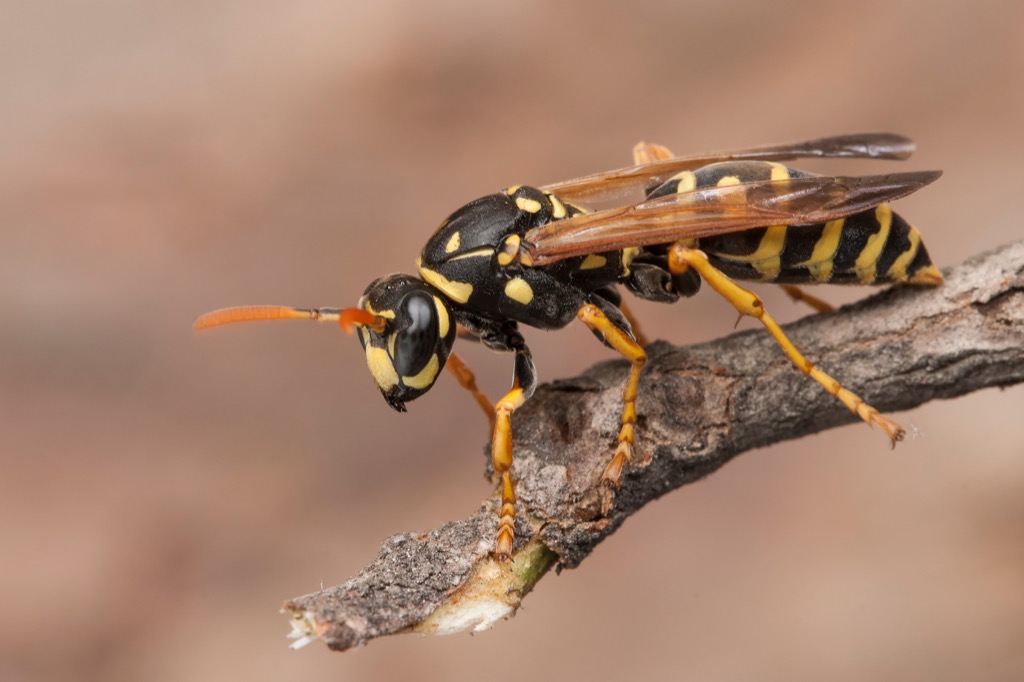
Toward the end of summer, when wasps are done providing for their queen and her offspring, they like to feast on energizing sugary foods and drinks in preparation for the wintertime. They will even feed on ripe and fermenting plant sap in order to "be inebriated," as etymologist Donald Lewis explained to Slate. The problem? Once wasps are able to leave the nest and hunt for food, they are all the more available to sting you. One 2006 study published in the Journal of Family Practice found that August and September have the highest incidences of yellow jacket stings.
86
Several Chinese emperors died from taking an "immortality" elixir.

Chinese emperors who wanted to extend their lifespan would take elixirs that were thought to bring on immortality. However, these elixirs actually contained mercury, lead, and arsenic, and resulted in their deaths from poisoning. According to historians, the first emperor to die from elixir poisoning was Qin Shi Huang around 210 B.C., and the last was Yongzheng in 1735 A.D.
87
Willie Nelson and Frank Sinatra made PSAs on space together.

Willie Nelson and Frank Sinatra were not only great friends but also collaborators. In the early '80s, they did a series of PSAs to promote the benefits of space technology. "We do share the same feeling about space technology," Sinatra said in one of the spots. "What this casually dressed gentleman and I have found out and want you to know, is that a lot of what's going on up there," he continued, with Nelson chiming in, "benefits all of us down here."
88
Adolf Hitler plotted to kill Winston Churchill with exploding chocolate.

The Nazis might be known for heinous war crimes, but assassination by chocolate is one evil plot that they were able to keep relatively under wraps. In the 1940s, Adolf Hitler's bomb-makers coated explosive devices with a thin layer of dark chocolate, then packaged it in black and gold paper in order to make it look fancy, according to Smithsonian. German secret agents were to place this "chocolate" in Winston Churchill's War Cabinet dining room where he often ate his meals. However, the plan was foiled by British spies. Death by chocolate averted!
89
There are 10 million tons of diamonds on Jupiter and Saturn.
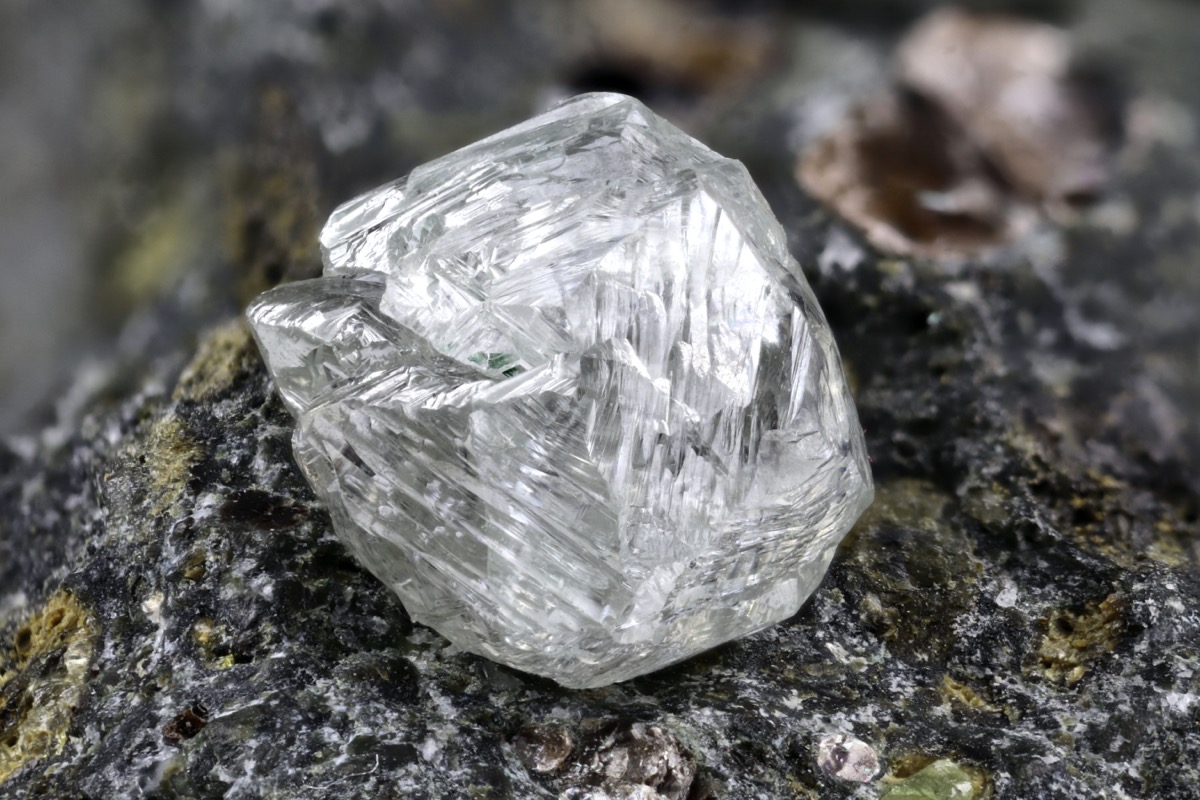
In a 2013 study published in the journal Nature, two scientists found that the high pressures inside Jupiter and Saturn's atmospheres could turn carbon into chunks of diamonds. The study also noted that these diamonds can melt under extreme pressure and temperatures, which leads to the formation of liquid diamond raindrops. It's possible that as many as 10 million tons of diamonds could be inside these two planets combined.
90
Nutmeg can be poisonous in large doses.
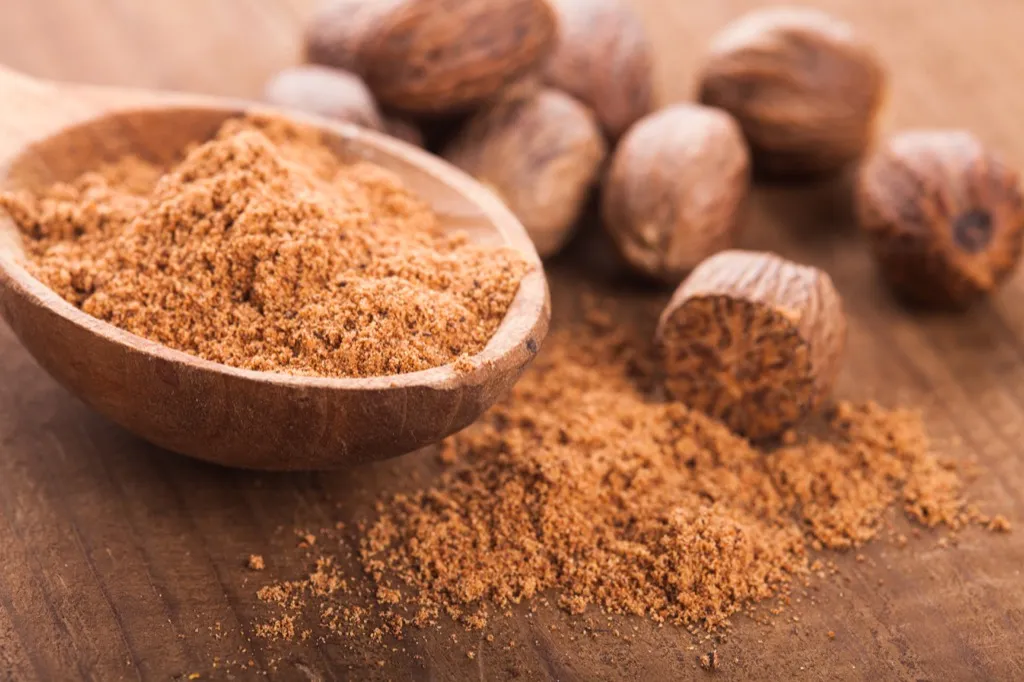
While a small dusting of nutmeg on top of eggnog or desserts is fine, large doses of the spice—around two to three tablespoons, to be exact—can be toxic and even deadly. Nutmeg poison cases are rare, with only 32 cases reported between 2001 and 2011, according to the Journal of Medical Toxicology, and they are most common in teenagers who have taken it intentionally to test its toxicity. Nutmeg has also been used in prisons, where inmates ingest large amounts in order to get a "high" feeling.
91
The longest bout of hiccups lasted for 68 years.
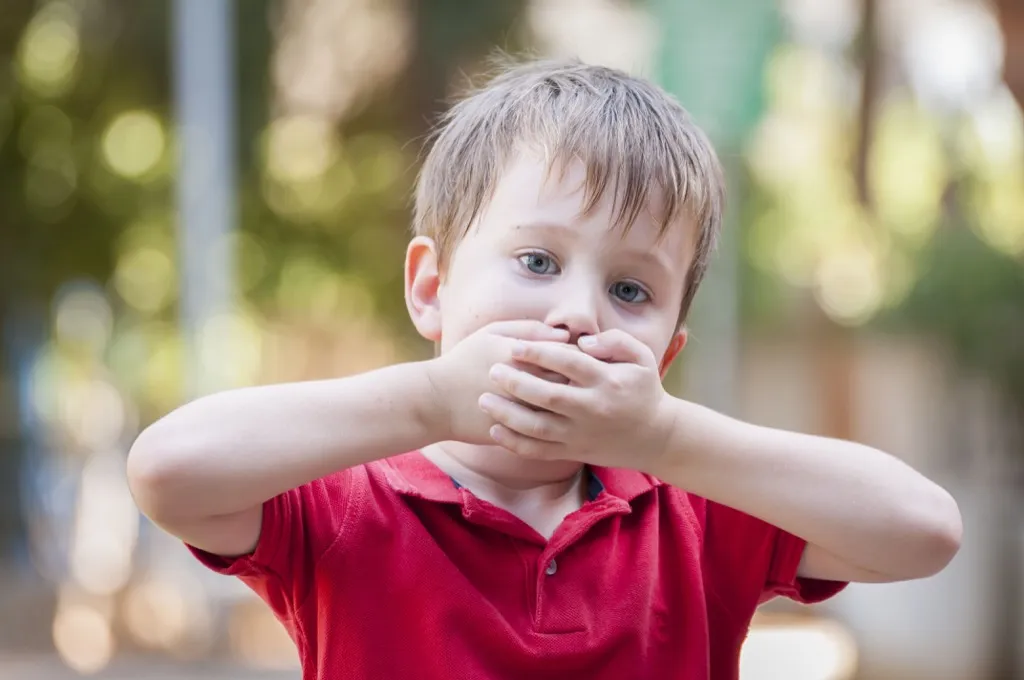
Iowa farmer Charles Osborne holds the world record for the longest continuous bout of hiccups at 68 years. According to BBC News, Osborne started out hiccuping about 40 times a minute, though eventually it slowed down to 20 a minute. He died in 1991, after having spent 70 percent of his 97 years hiccuping.
92
The world population has more than doubled since John F. Kennedy was president.

As of May 2019, the world population was estimated to be 7.6 billion. Between 1960 and 1965, when John F. Kennedy was president of the United States, the world's population was between 3 and 3.3 billion. That means the world population has more than doubled in about 60 years. And, according to the United Nations, the world population is estimated to reach 9.8 billion by 2050.
93
Black teeth were a sign of wealth in 18th century England.

In 18th century England, sugar was a valuable commodity that was consumed in excess. Because it was expensive, it was mostly enjoyed only by the rich, like Queen Elizabeth I. As a result, if someone had black teeth, a sign of eating too much sugar, they were considered to be wealthy. My, how times have changed.
94
There's a fence in Australia longer than the distance between Seattle and Miami.

There's a fence in Australia named the Dingo-Proof Fence, which stretches across nearly 3,500 miles, longer than the 3,330 miles between Seattle, Washington, and Miami, Florida. Not surprisingly, the Dingo-Proof Fence earned the Guinness World Record for being the longest fence in the world. This structure, which was completed in 1885, gets its name because it was intended to keep dingoes out of the fertile southeast part of the continent.
95
Almonds are part of the peach family.
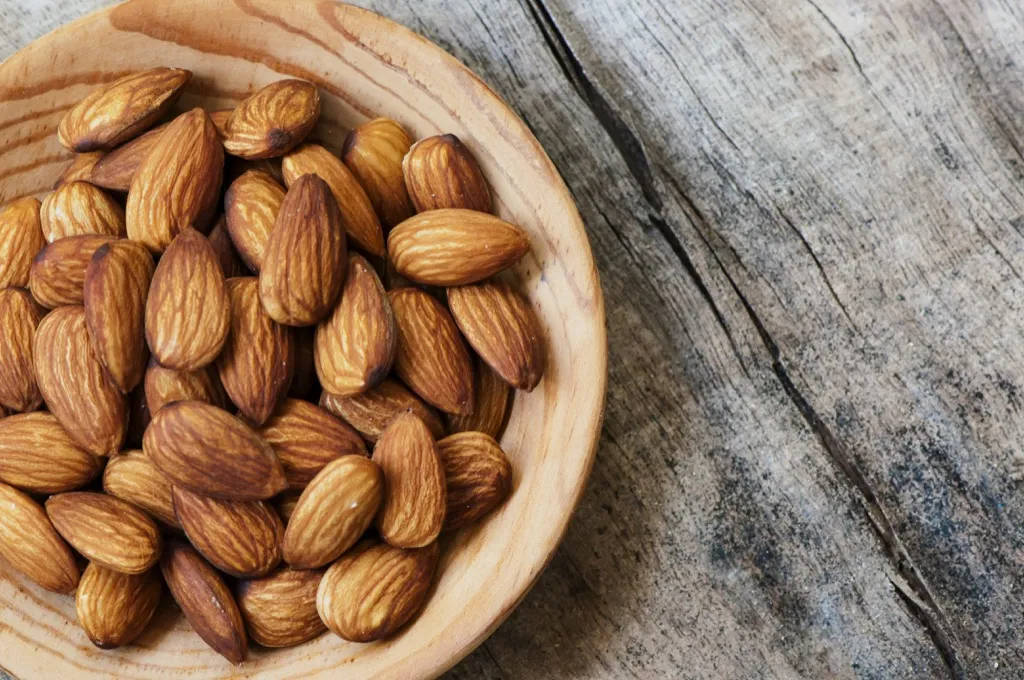
Almonds are actually the hard-shelled fruit of the almond tree. This type of stone fruit is a member of the same family as peaches, apricots, and plums. And if you think about it, the pit of a peach does indeed resemble a large nut.
96
The longest time between two twins being born is 87 days.

Twins Katie and Amy Jones-Elliot hold the Guinness World Record for the longest birth interval between two twins, being born 87 days apart. In 2012, their mother, Maria, went into labor four months early and gave birth to Amy, but Katie was able to stay in her womb for three more months. Miraculously, both girls survived and are healthy today.
97
A jockey won a horse race while dead.

In 1923, jockey Frank Hayes took off on his horse, Sweet Kiss, at Belmont Race Track on Long Island. Mid-race, Hayes suffered a heart attack and died. But his body stayed in the saddle as Sweet Kiss crossed the finish line—and won the race! So, even though he was dead, Hayes was still a winner (and a history-maker).
98
Bananas are Walmart's best-selling item.
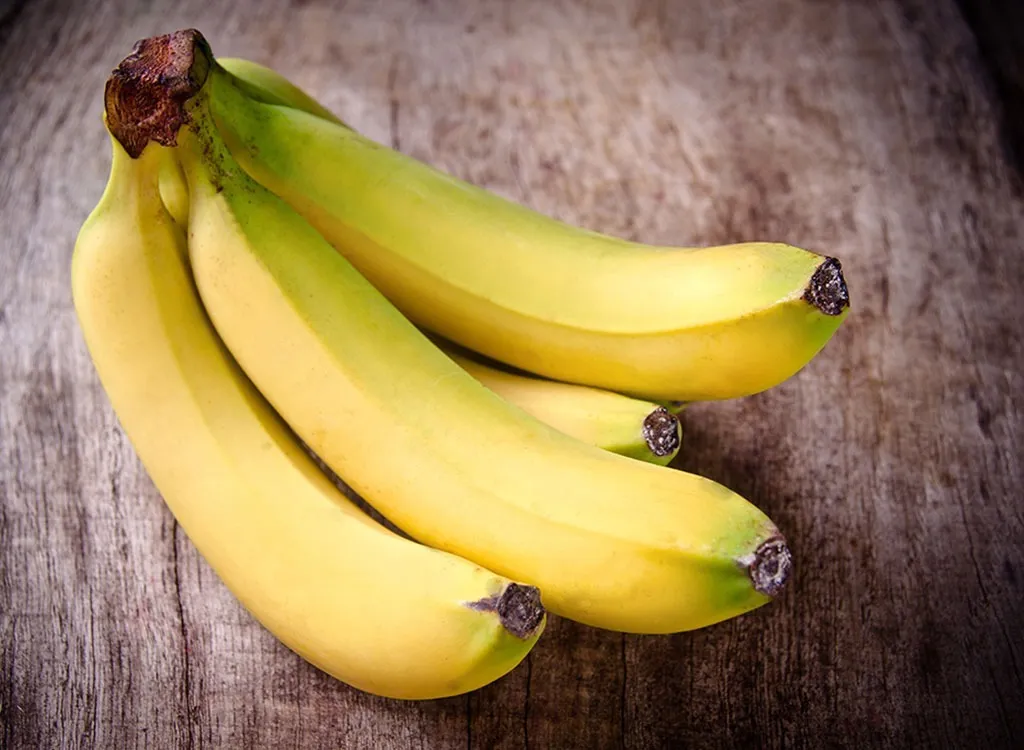
Talk about a totally bananas fact! Of all the things that Walmart carries and sells, the best-selling item is bananas, and has been for several years, Vice reports. Why bananas, you ask? Well, a Walmart spokesperson explained to Business Insider that bananas are a hit because they're an easy, healthy food to pack and eat, and very affordable.
99
Scotland's national animal is the unicorn.
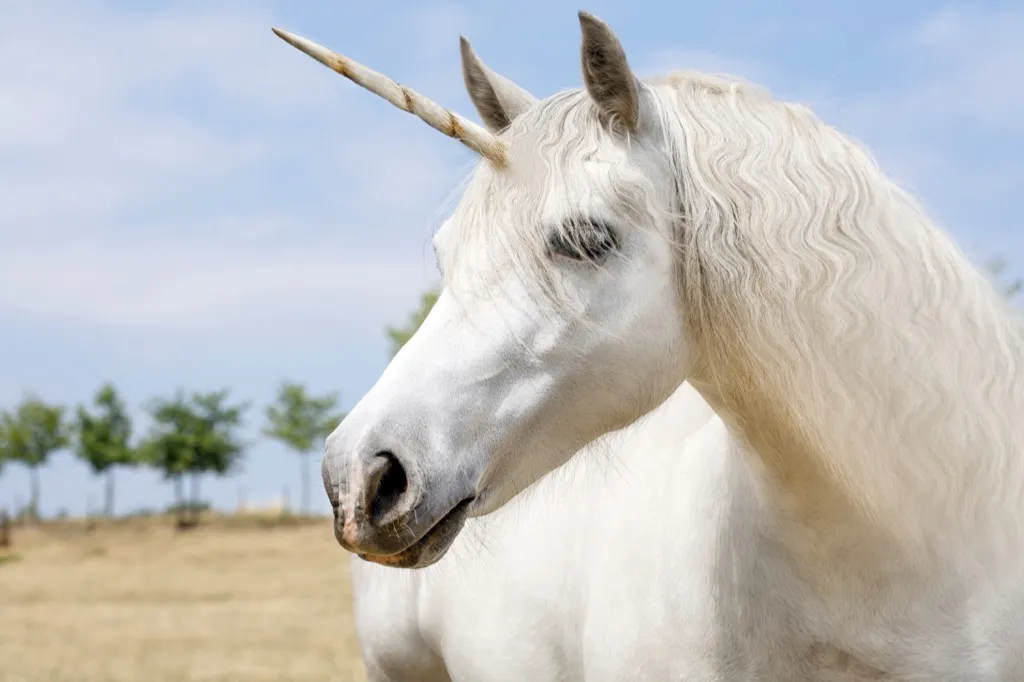
When Scotland featured the unicorn on its royal coat of arms in the 12th century, the creature was believed to be a real animal. It wasn't until 1825 that scientist Georges Cuvier disproved the mystical creature's existence, stating that it was not feasible for an animal with a split hoof to have a single horn emerging from its head, according to National Geographic. But, because the unicorn symbolizes nobility, purity, power, and good luck, it remains Scotland's national animal today.
100
May 29 is "Put a Pillow on Your Fridge Day."

Yes, "Put a Pillow on Your Fridge Day" is a real holiday, celebrated in the United States and Europe every year on May 29, spanning back to the early 1900s. The idea is simple—just place a pillow on top of your fridge to bring prosperity and good fortune into your life.
The tradition started with putting a piece of cloth or linen from one's bedroom on their larder, the precursor to the fridge. But as time went on and electrical refrigerators were released, this tradition evolved and became "Put a Pillow on Your Fridge Day." There's even a Facebook page devoted to it!





















